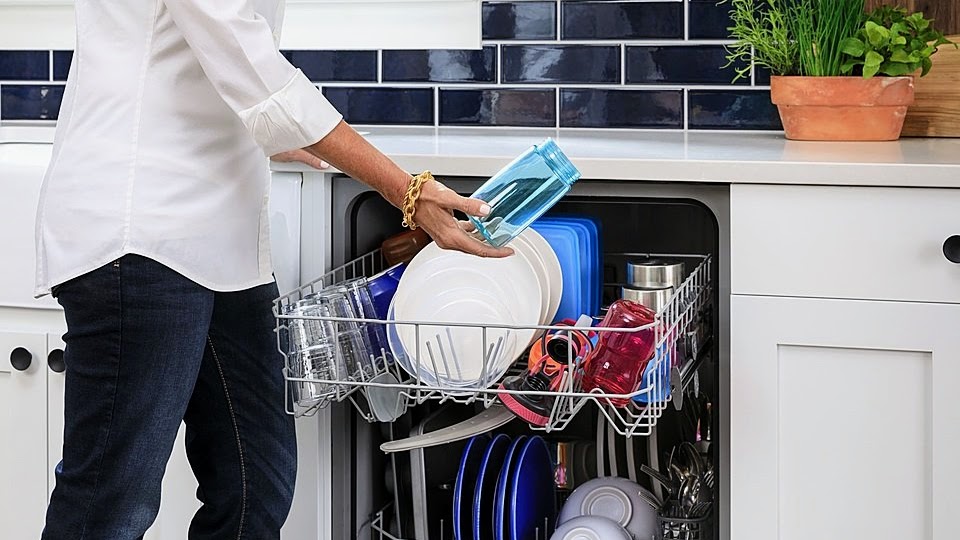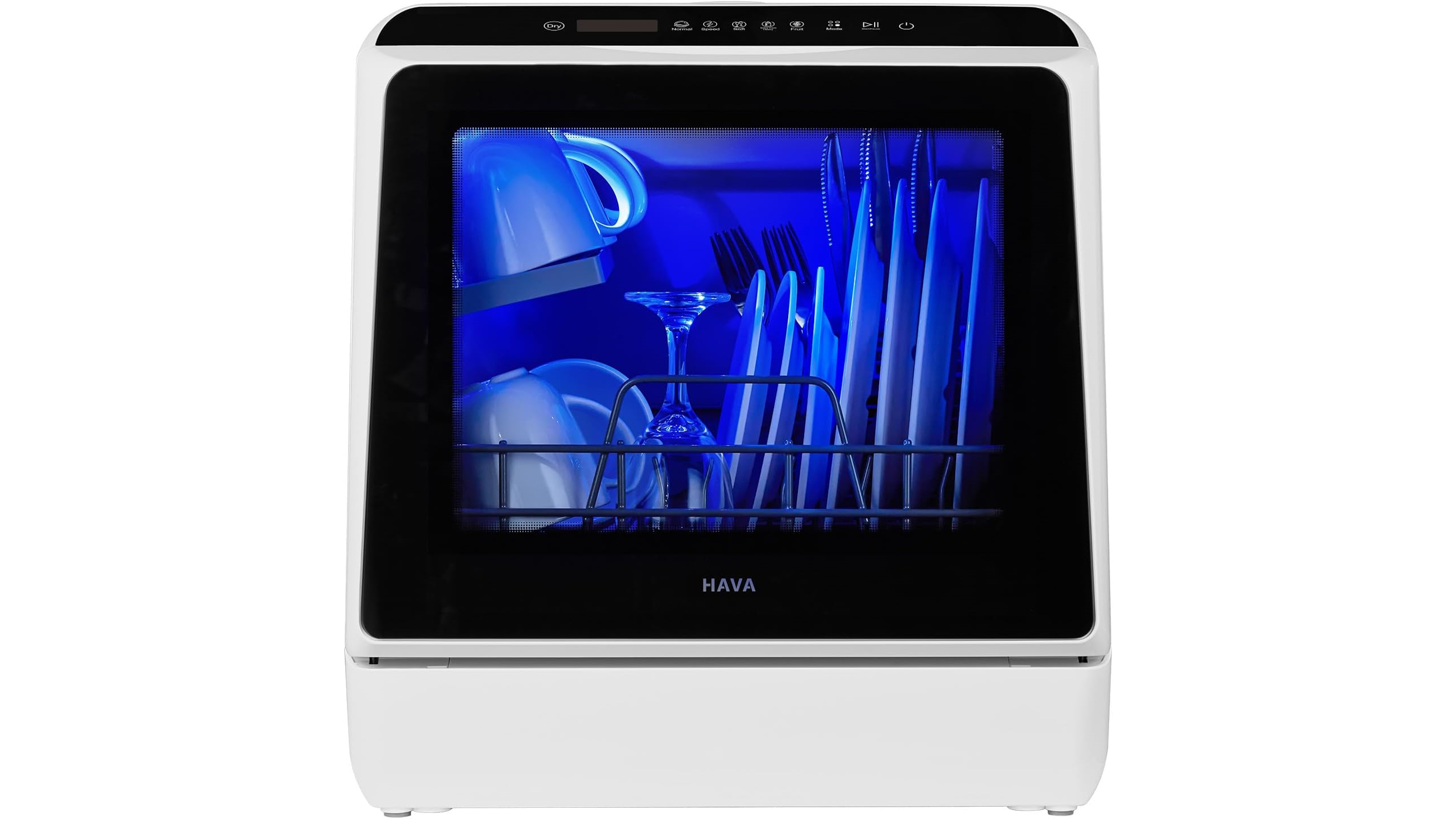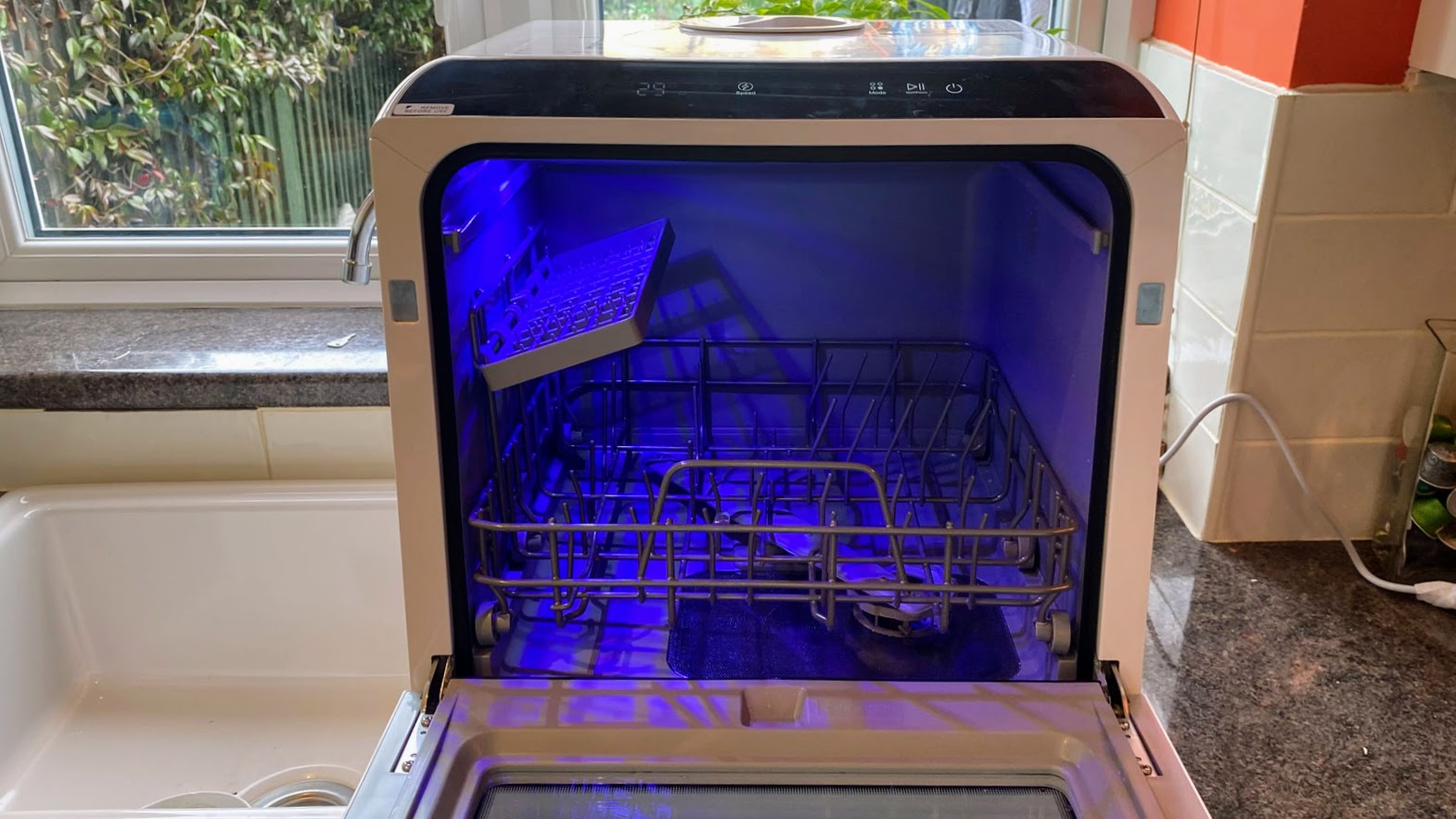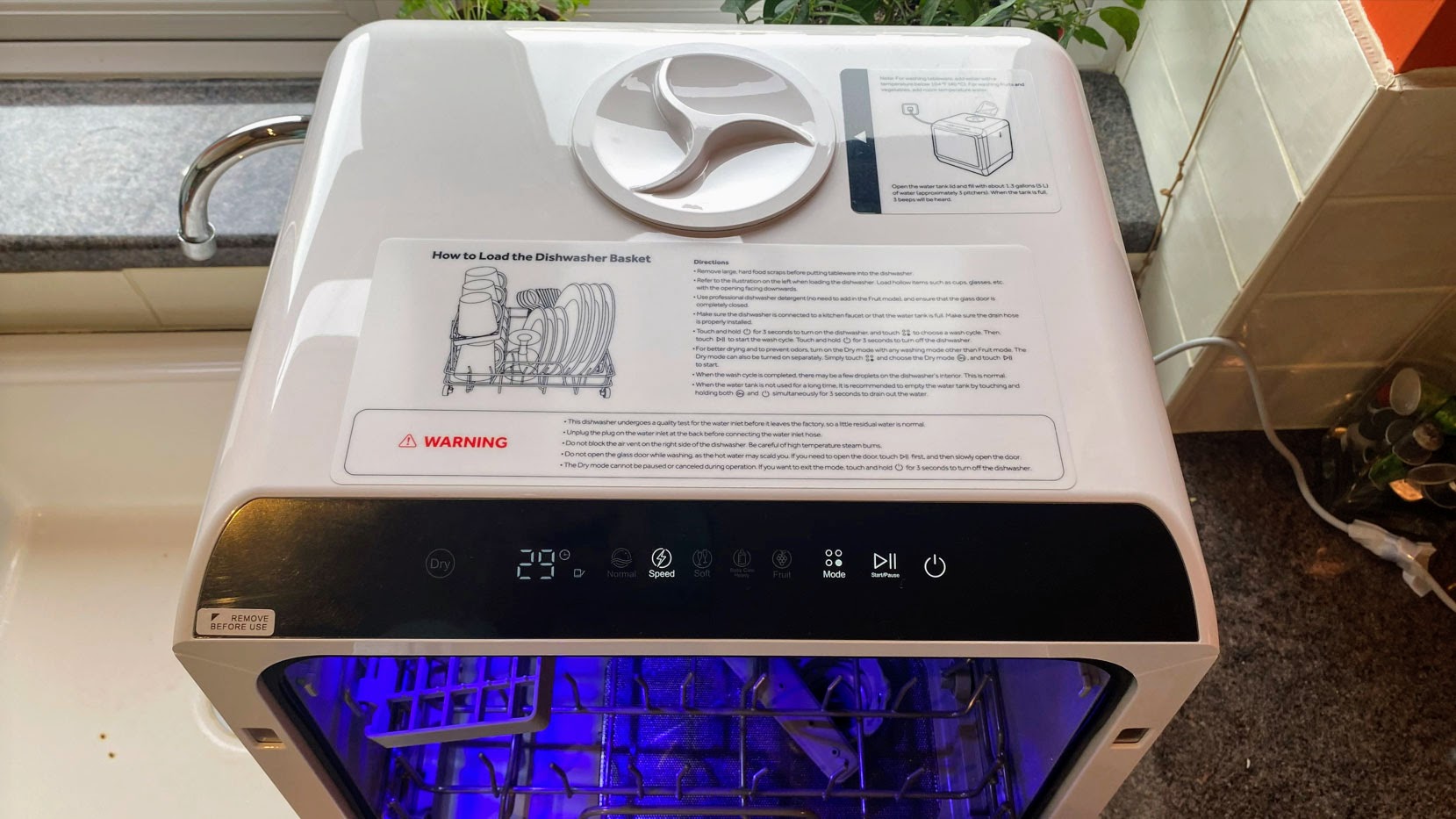The best dishwasher is a great investment when cleaning up after meals, but choosing the right one can be overwhelming because there are so many types. Check out the best Black Friday dishwasher deals.
Families will love full-size portable or built-in dishwashers, while smaller households with limited space will love the best countertop dishwashers. This page provides a comprehensive guide to what our team considers the best dishwashers, including ten top-rated models with different specs, pros, and cons. If you already have Samsung or LG appliances, some even come with smart features that can integrate with your connected home.
While we haven't personally tested every model on our list, we narrowed down our selection based on the number of cycle settings, place settings, interior space, smart connectivity, and overall appearance each appliance has. Check out our shortlist and find the perfect dishwasher.

I have curated this guide to the best dishwashers based on user reviews and industry knowledge, assembling the best of the best on this page. I will continue to update the guide as new models become available.
The quick list
Below, we’ve provided an overview of the important details you need to know about each product immediately so you can buy quickly if you're in a hurry. If something catches your eye, use the links to delve deeper into the analysis provided for each product further down the page.
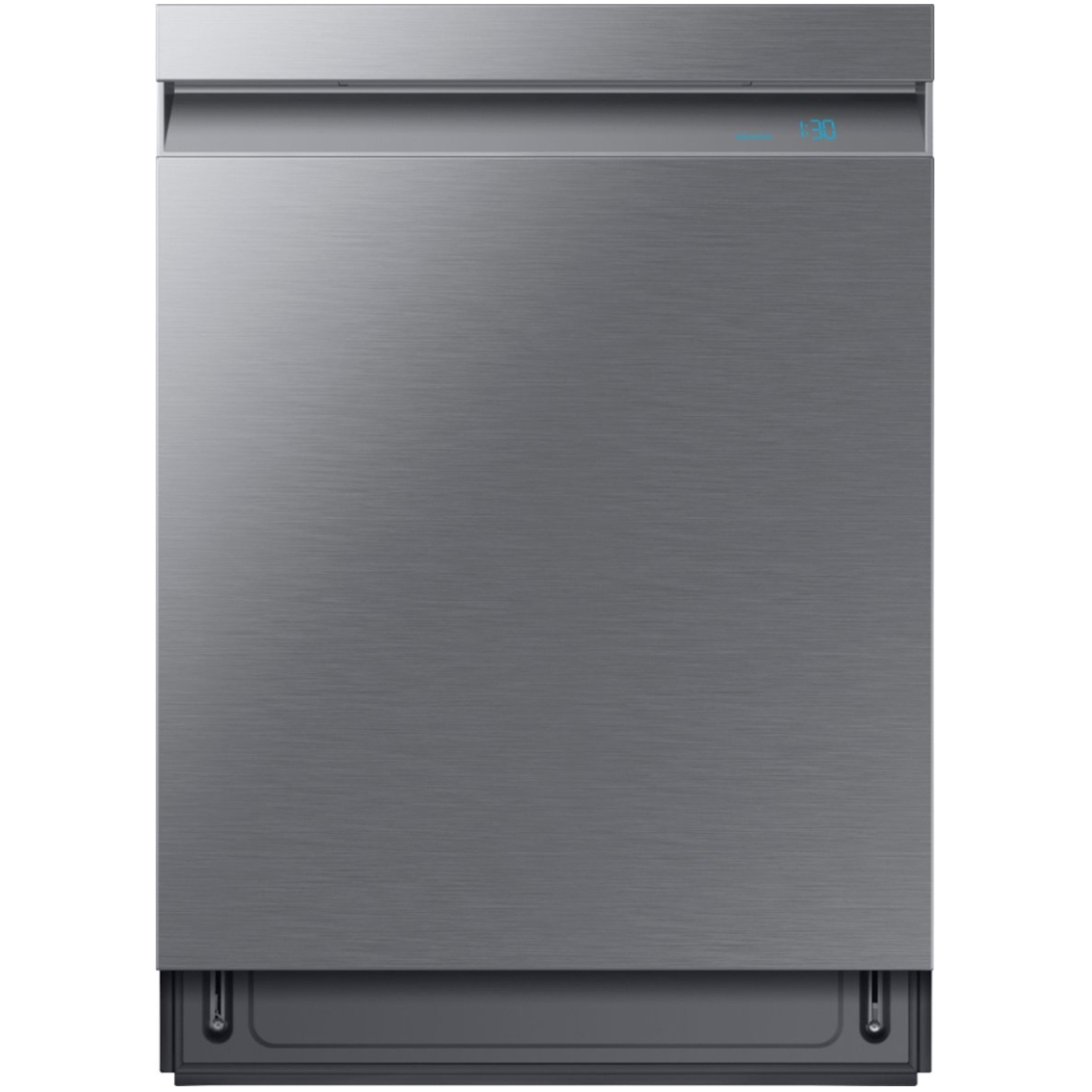
The best dishwasher overall
The Samsung DW80R9950US dishwasher offers near-silent operation, impressive cleaning, and a sleek design. It has an adjustable third rack and SmartThings remote monitoring.
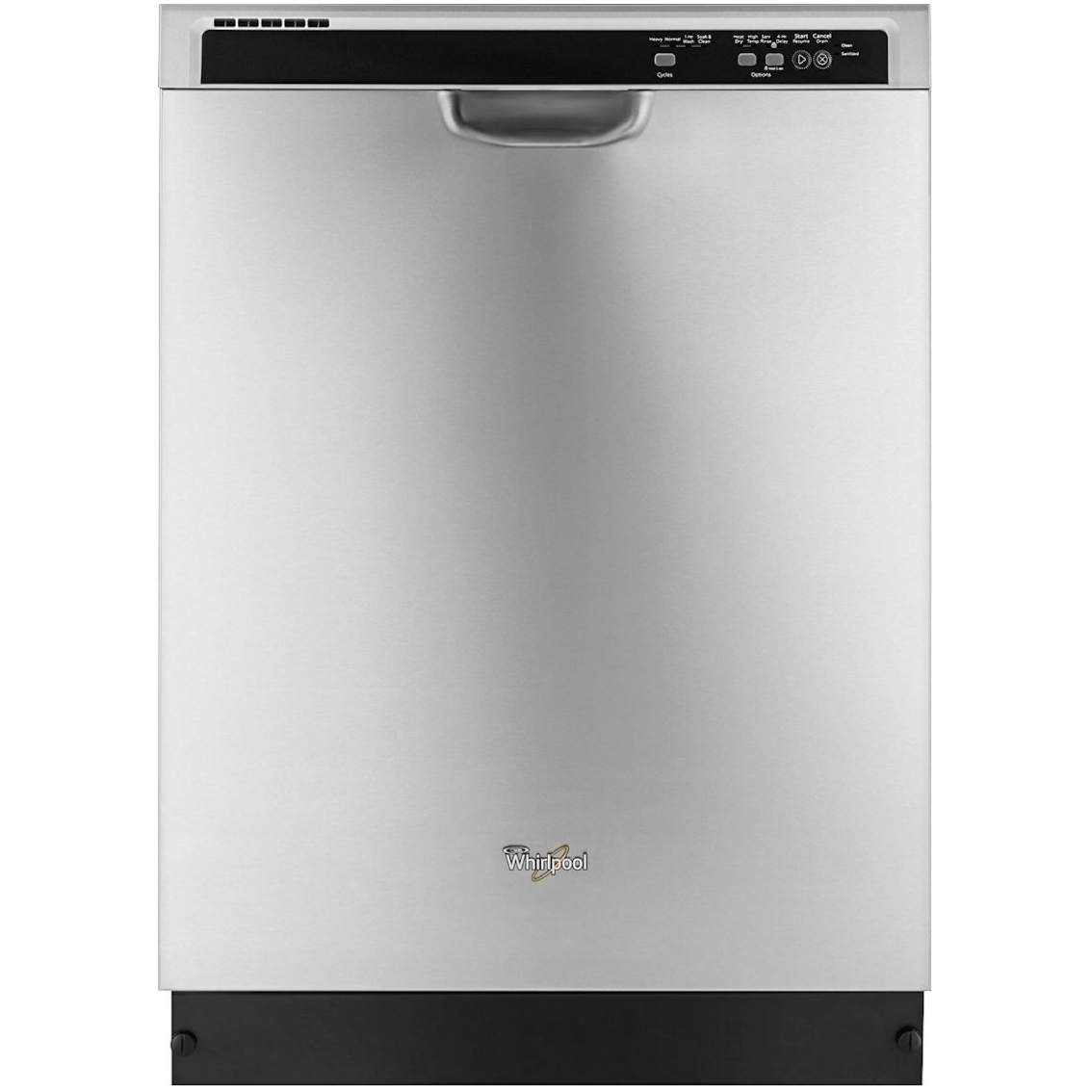
The best cheap dishwasher
The budget-friendly Whirlpool WDF520PADM dishwasher offers solid cleaning with 14 place settings, Energy Star certification, AccuSense sensor, and positive user feedback.
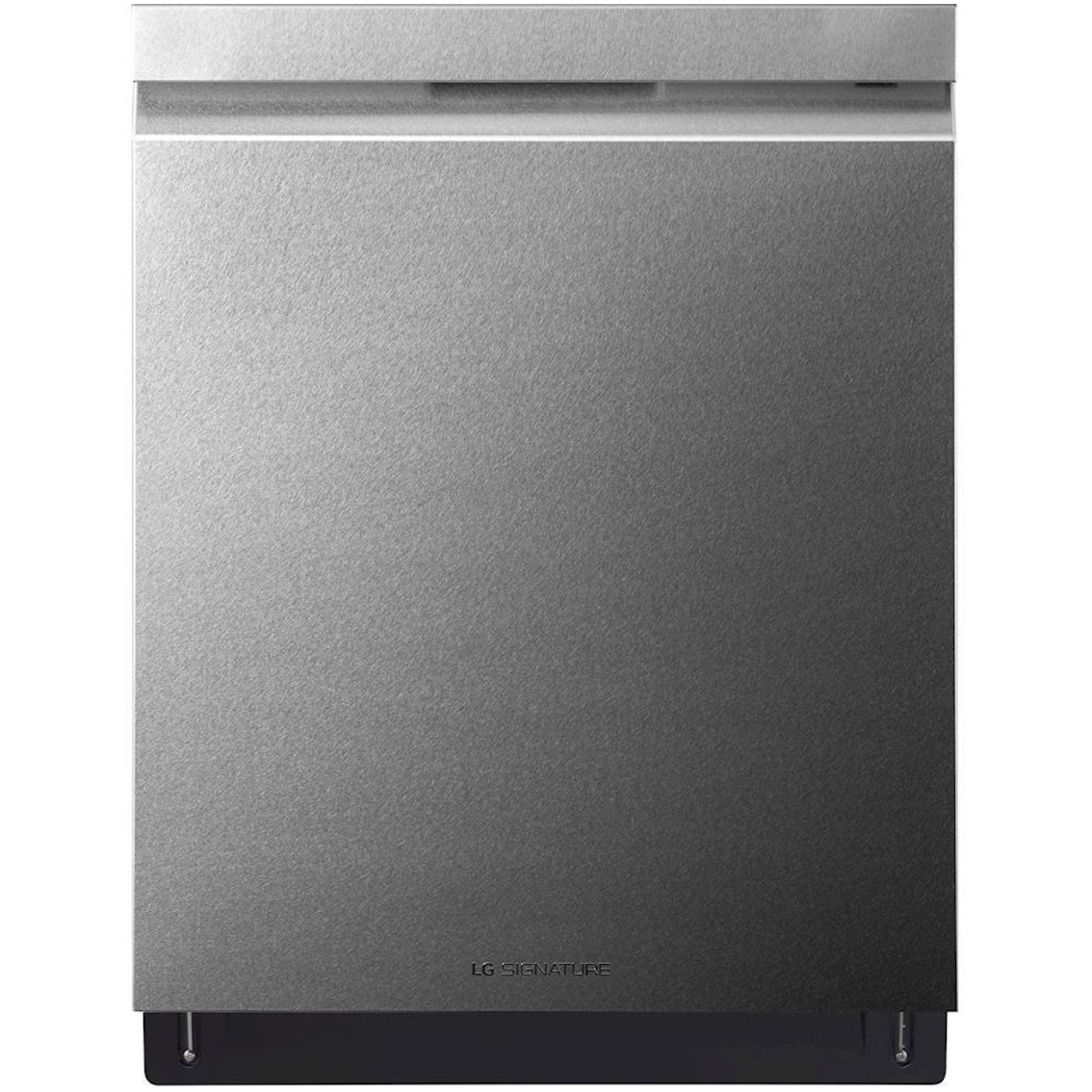
The best premium dishwasher
The LG Signature dishwasher features Wi-Fi compatibility for remote programming, TrueSteam cleaning, and quiet operation, but some users noted greasy dishes and tricky touch controls.
Load the next products ↴
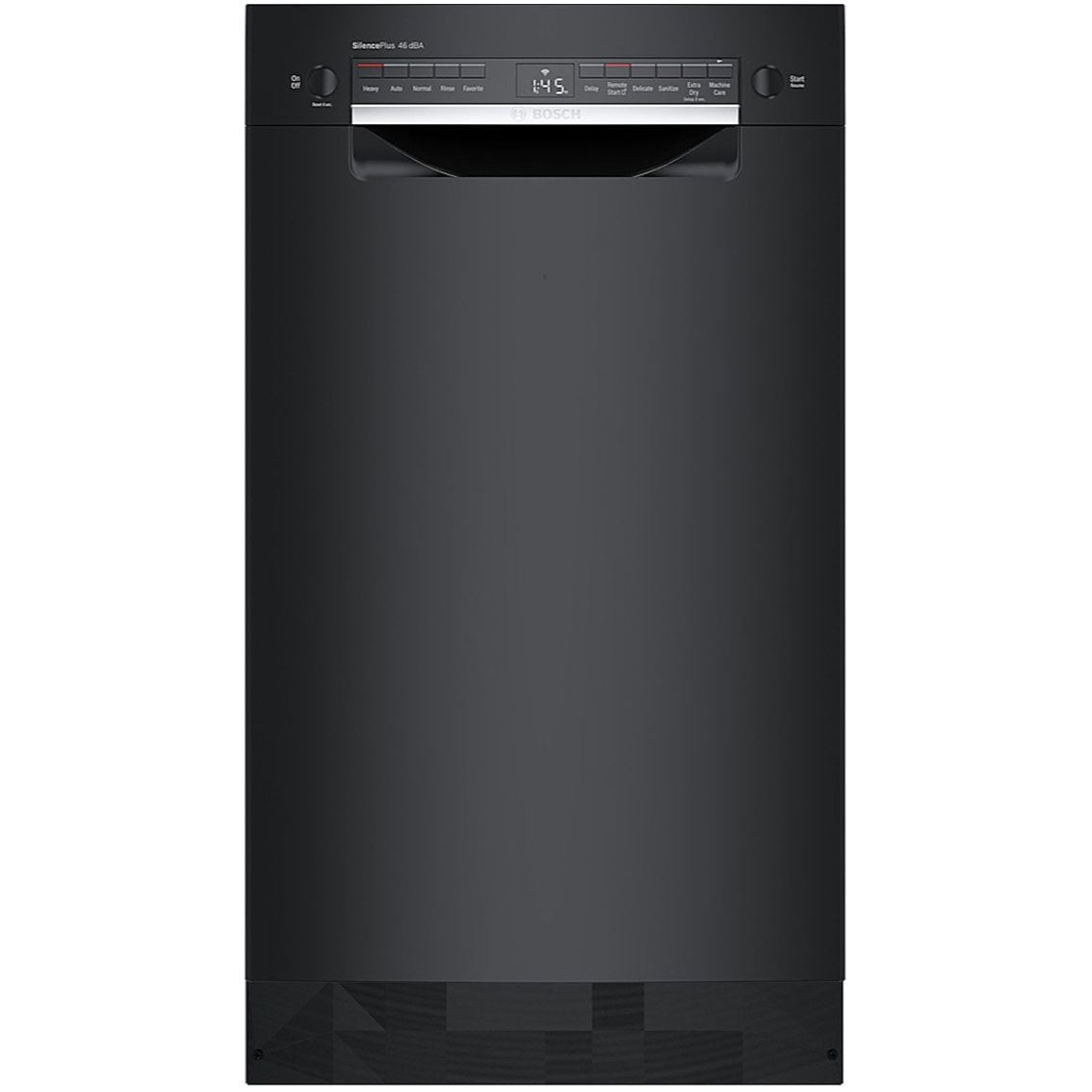
The best dishwasher for small spaces
The Bosch 300 Series 18" Dishwasher offers quiet operation, a water softener for spot-free dishes, a 3rd rack, 5 wash cycles, and smart technology for remote control.
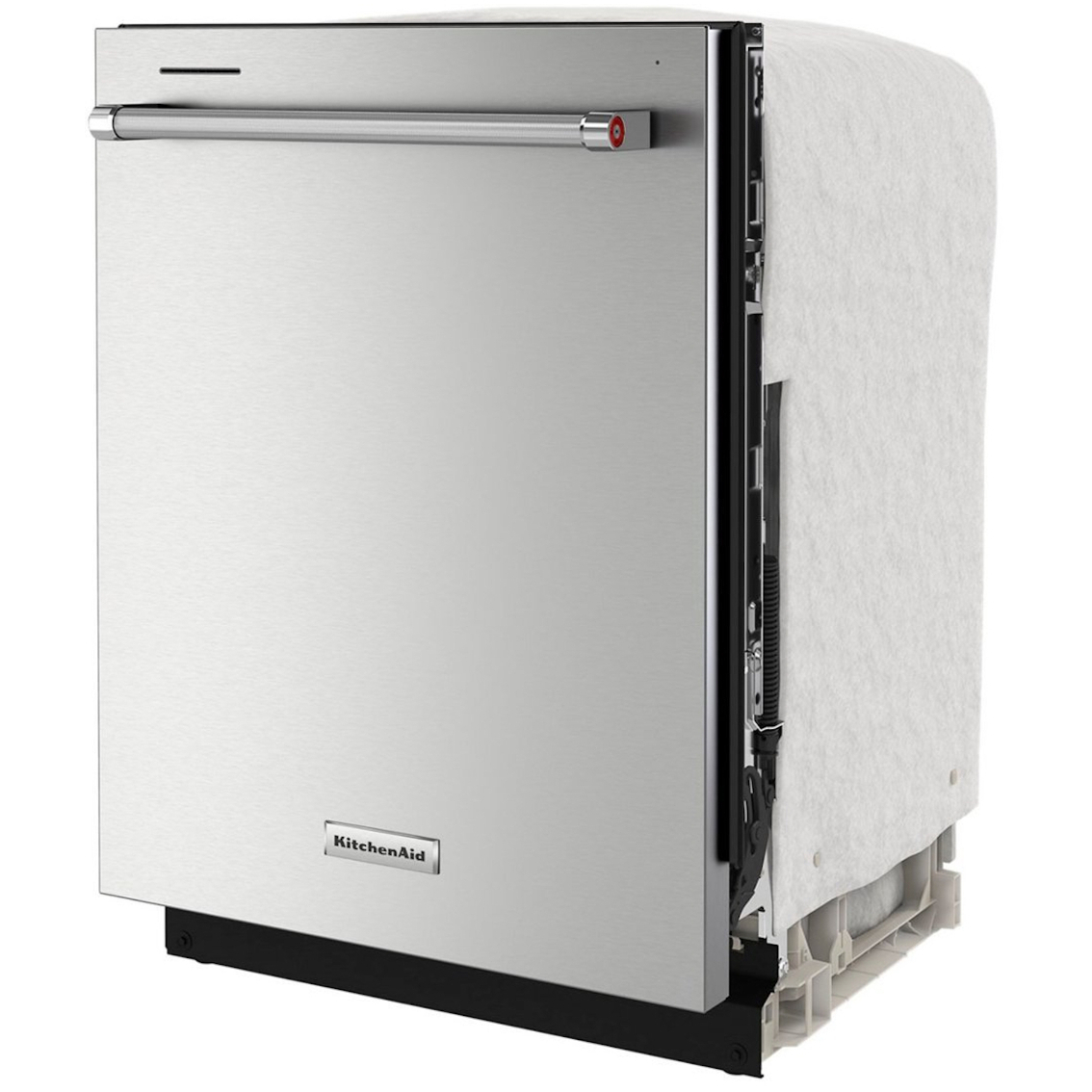
The quietest dishwasher
This KitchenAid Dishwasher operates quietly with a ProWash Cycle, Heat Dry Option, third-level utensil rack, and adjustable middle rack. Some concerns include drying performance and installation.
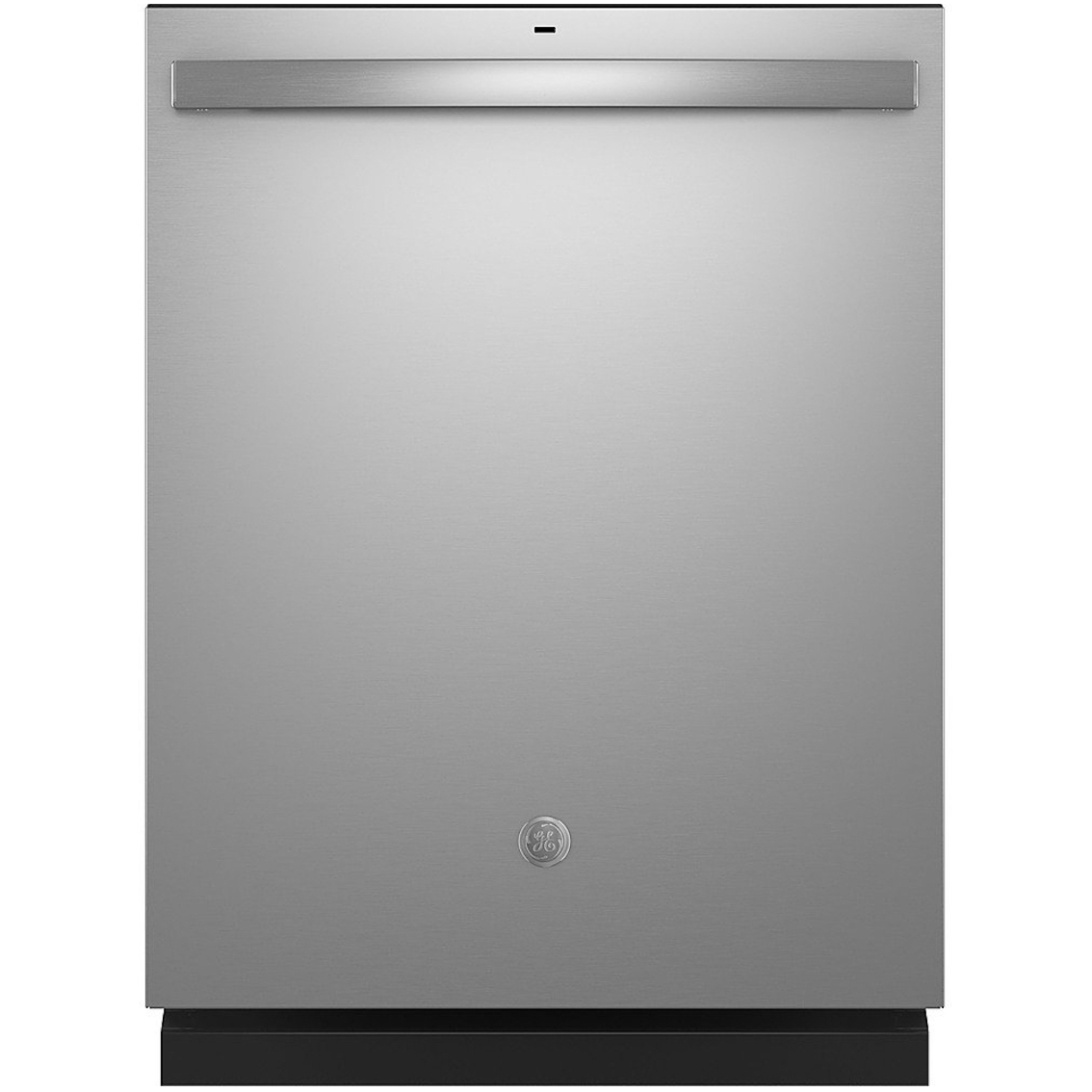
The best dishwasher with hard food disposer
This GE dishwasher features a hard food dispenser, Dry Boost technology, Steam + Sani option, AutoSense Wash Cycle, and adjustable upper rack, but may have drying and door quality issues.
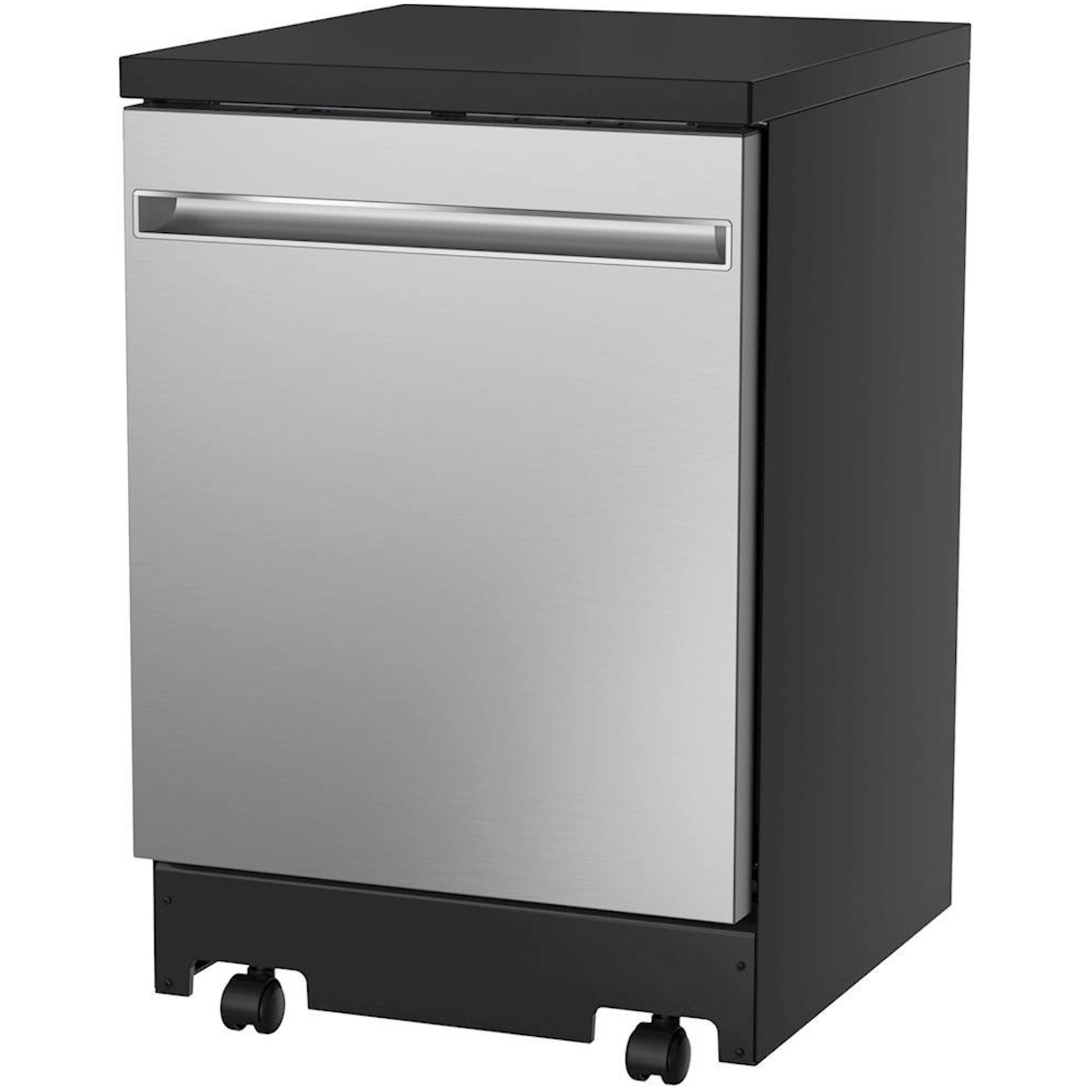
The best portable dishwasher
The GE GPT225SSLSS 24" Portable Dishwasher offers 12 place settings, 3 wash cycles, quiet operation, and a high-temperature rinse to sanitize dishes. Some reported drawbacks include drying issues and hose length limitations.
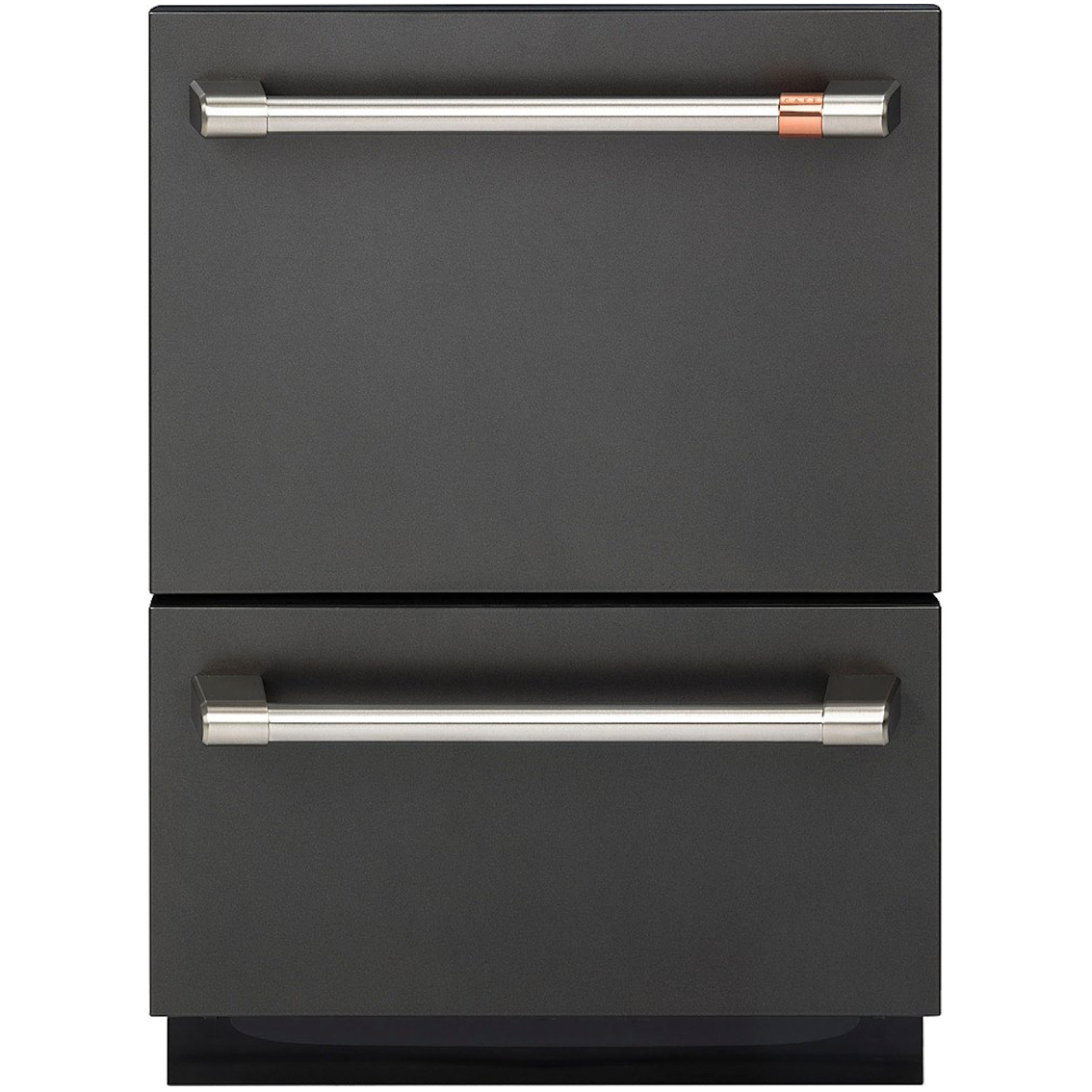
The best dual-drawer dishwasher
Check out the Cafe Customizable Professional Collection dishwasher, which features customizable finishes, practical features, two drawers, 14 place settings, and six wash cycles. It is quiet and stylish.
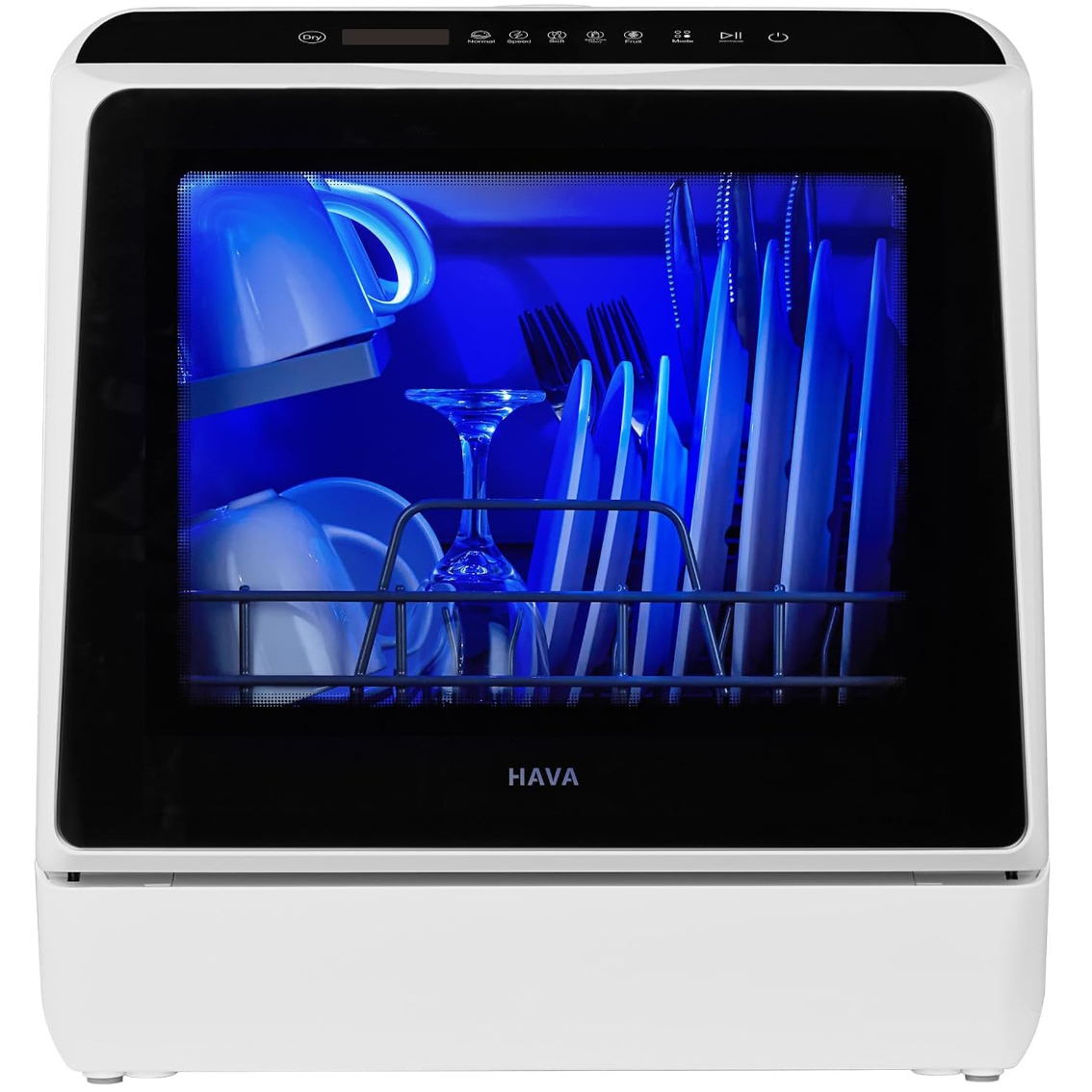
The best countertop dishwasher
Although some users reported leaks, the HAVA countertop dishwasher offers a compact design with touch-screen control, multiple wash cycles, and positive customer reviews.
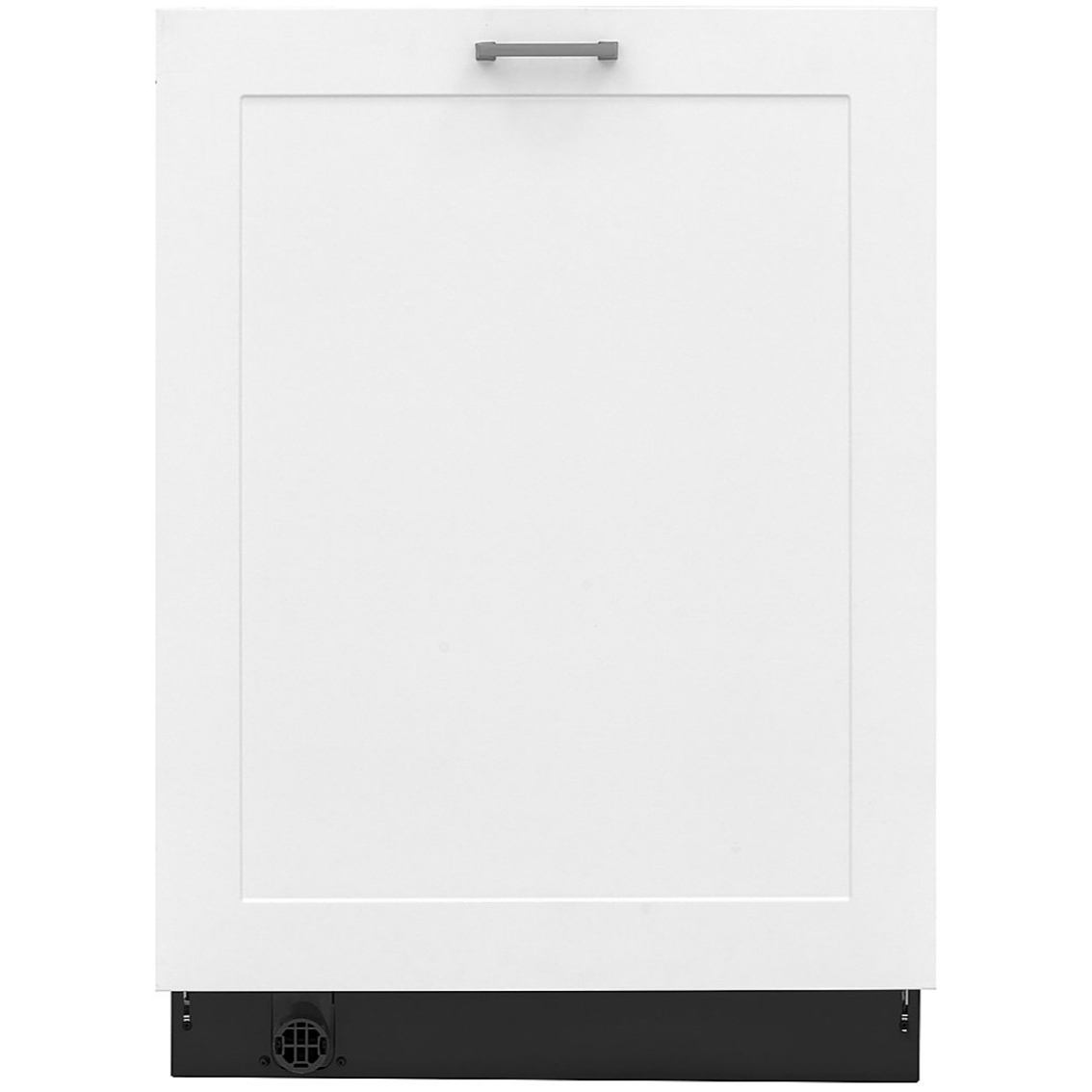
The best panel-ready dishwasher
The Frigidaire 24" Top Control Built-in Panel Ready Dishwasher offers customizable panels, thorough cleaning, EvenDry technology, adjustable racks, and ENERGY STAR certification.
The best dishwashers we recommend in 2025
Why you can trust Top Ten Reviews Our expert reviewers spend hours testing and comparing products and services so you can choose the best for you. Find out more about how we test.
Top Ten Reviews is on a mission to review everything we feature in our buyer's guides. Still, while we work hard to make this a reality—or where this isn't possible—some of our guides still feature rankings based on our team's considerable expertise and research.
While we haven't been able to test any of the units in this guide in person, we've instead honed in on top-rated brands and used our knowledge of the best features to help you make the right decision for your home, all for the best price.
The best dishwasher overall
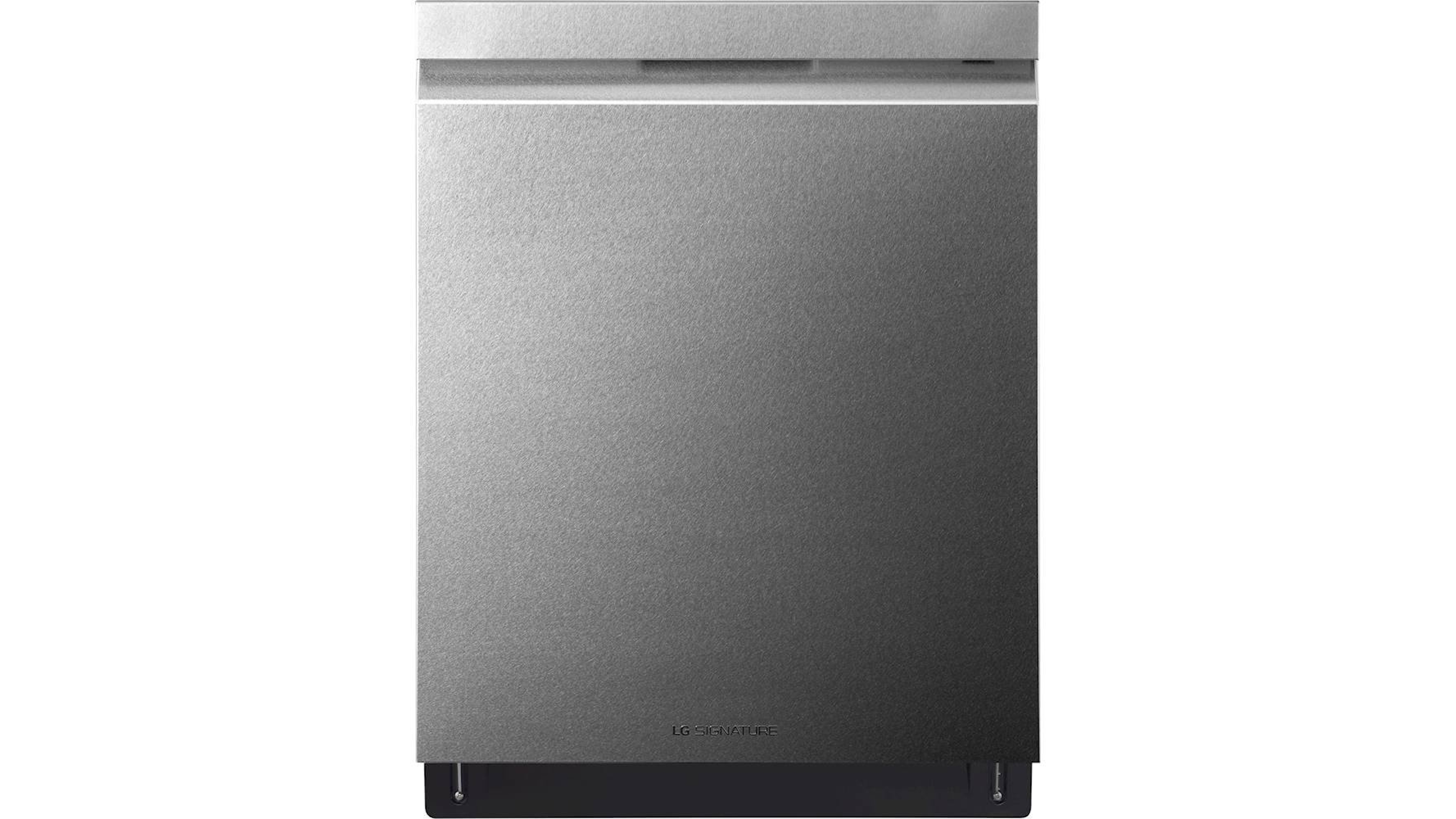
Samsung AutoRelease Dry Smart Dishwashers are praised for their easy installation, user-friendly control panel, and excellent cleaning and drying performance. Their intuitive design, quiet operation, and effective drying features make them popular. Additionally, their easy cleaning and maintenance further enhance user satisfaction.
Installation: Generally, Samsung AutoRelease Dry Smart Dishwashers are pretty easy to install, especially if you've ever done it. There are clear instructions and included hardware, but some people recommend professional installation. Overall, the installation process is well-received, but some reviews mention the need for additional tools or minor adjustments to fit specific kitchen setups. Installation is user-friendly, with most users setting it up easily.
Control Panel and Usability: It gets positive feedback for its intuitive design and ease of use. Users love the touch-sensitive controls and clear LED display, which make selecting cycles and settings easy. It has a third rack perfect for utensils and smaller items, and it's quiet with a 39dBA rating, so even open-plan homes won't notice it.
Cleaning Performance: Samsung dishwashers are excellent for cleaning, with many people praising them for being able to handle tough, baked-on food residues. Users appreciate the linear wash feature for providing thorough coverage, ensuring dishes come out spotless. There are many cycle options, too, so you can pick one that fits your needs.
Drying Performance: Many like how the Samsung AutoRelease Dry Smart Dishwasher dries dishes. The AutoRelease Dry feature, which opens the door at the end of the cycle, is often hailed as an essential feature that promotes better air circulation and more effective drying. According to many reviews, dishes, including plastics, come out dry and ready to use. It seems heavier items might retain some moisture, but the drying performance is excellent overall.
Cleaning and Maintenance: The Samsung dishwasher is known for its easy cleaning and maintenance. Users like the removable and adjustable racks, which make it easy to clean hard-to-reach areas. The stainless steel tub is durable and resistant to odors and stains. Removing and rinsing the filter system is easy, so it works well. The dishwasher's design supports easy cleaning and maintenance, enhancing its longevity and user satisfaction.
The best cheap dishwasher
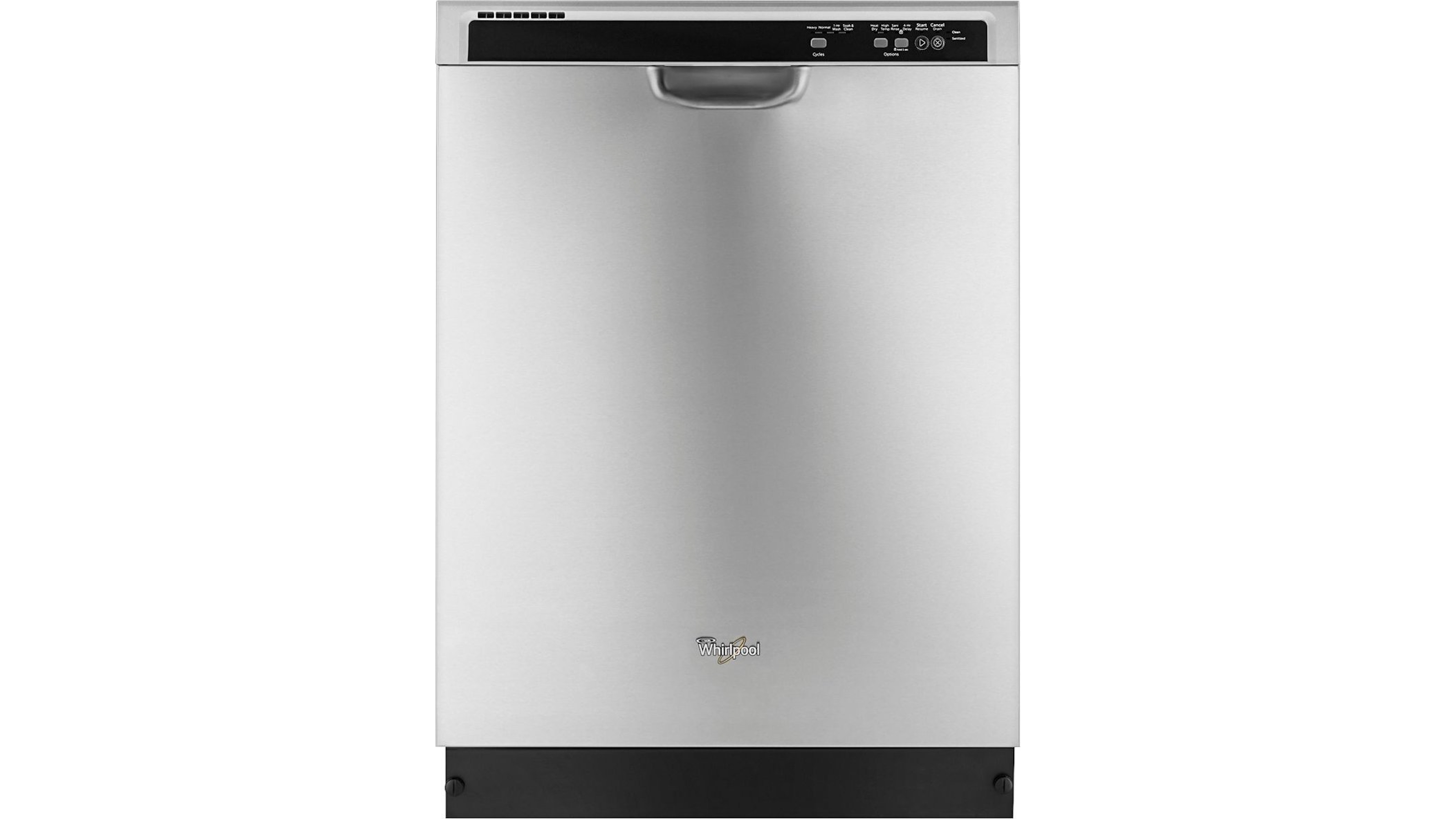
The Whirlpool 24" Tall Tub Built-In Dishwasher is praised for its easy installation process, user-friendly control panel, and efficient cleaning performance. However, it receives mixed reviews for its drying performance. Despite this, users find it easy to clean and maintain, with accessible components and a durable stainless steel interior.
Installation: The Whirlpool 24" Tall Tub Built-In Dishwasher can be installed using just a few tools. DIYers can do it themselves because the instructions are clear. Most people say the dishwasher goes smoothly and fits seamlessly into standard kitchens.
Control Panel and Usability: The Whirlpool dishwasher's control panel is praised for its simplicity and user-friendly layout. People love the straightforward buttons and clear labels, which make setting up wash cycles easy. The dishwasher is easy to use and runs quietly, so it's excellent for open-concept homes. Reviews say it's pretty efficient and caters to all cleaning needs.
Cleaning Performance: There are lots of good reviews for the Whirlpool 24" Tall Tub Dishwasher, from lightly soiled to heavily baked-on residues. Besides an intensive setting for tough stains, the dishwasher has multiple cycles to handle different cleaning needs. Users can load bigger pots and pans with a spacious interior and adjustable racks.
Drying Performance: Whirlpool dishwashers get mixed reviews regarding drying performance. Some users say dishes come out dry and spotless, but others say plastics sometimes retain moisture. A dishwasher's heat-dry option improves drying, especially with glassware and ceramics. It's convenient to have primarily dry dishes at the end of a cycle, so you don't have to dry them manually.
Cleaning and Maintenance: It's easy to clean and maintain the Whirlpool dishwasher. The stainless steel interior is durable and resists stains and odors. Regular maintenance, like checking the spray arms and filter, is recommended for continued efficiency. Users appreciate the removable filter, which is easy to clean and helps maintain optimal performance. Users report that routine maintenance is manageable without professional help due to the design's easy access to components that need cleaning.
The best premium dishwasher
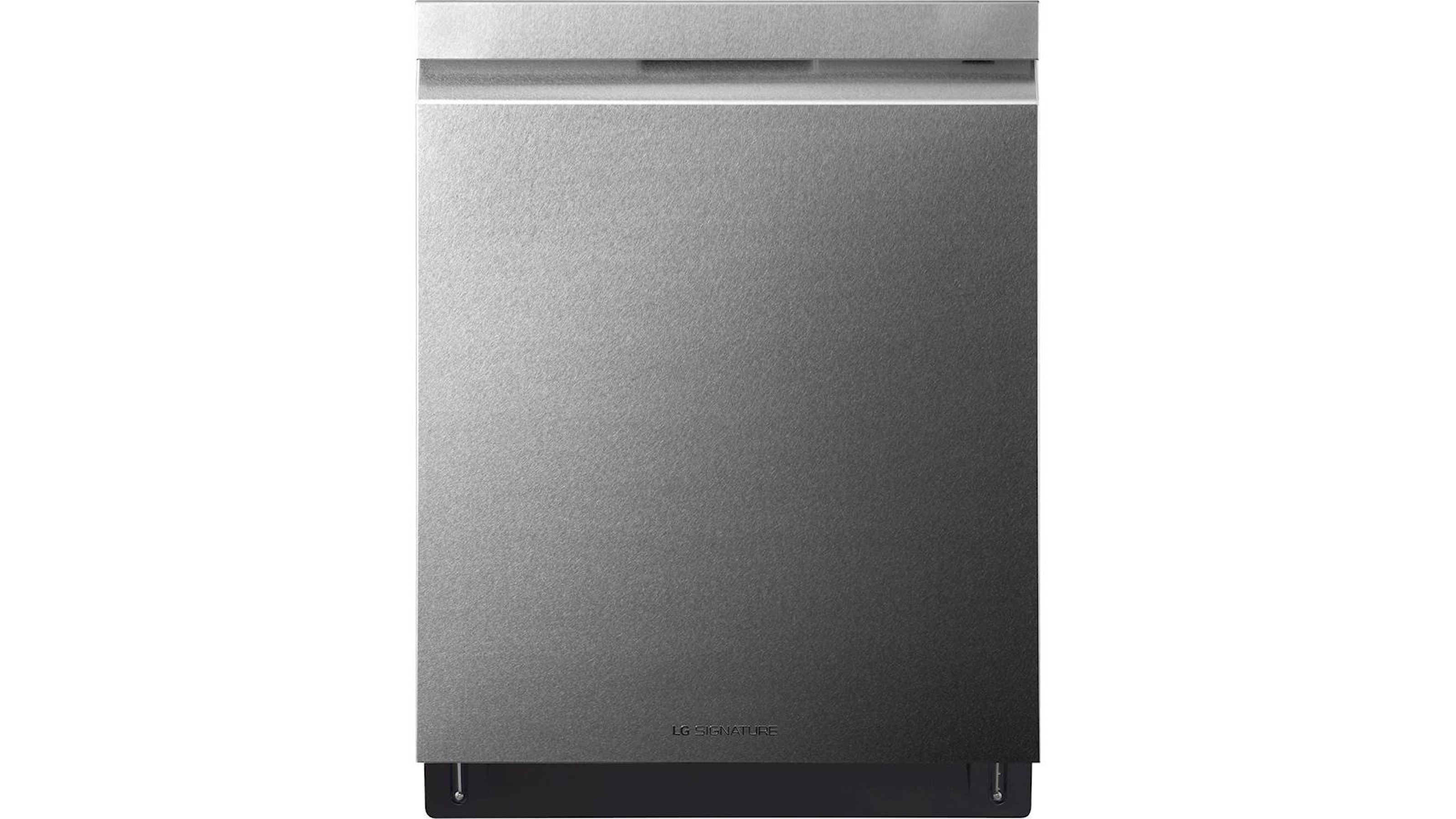
The LG Signature 24" Top Control Smart Dishwasher receives high praise for its user-friendly installation, top control panel, and exceptional cleaning and drying performance. TrueSteam technology and smart features offer convenience and efficiency. Users appreciate its sleek design and easy maintenance, making it a standout choice for modern kitchens.
Installation: LG Signature 24" Top Control Smart Dishwasher users like the setup process. They say the detailed instructions and hardware make setup easy for people with basic DIY skills. The dishwasher fits seamlessly into standard kitchen layouts, and its sleek design complements modern aesthetics.
Control Panel and Usability: The LG Signature dishwasher's control panel and usability are praised. Users like the top control panel, which has a sleek appearance and accessible settings. Touch controls are responsive, and the LED display makes it easy to select cycles and options. A third rack increases flexibility and capacity to load utensils and small things efficiently. Smart features like remote operation via a smartphone app are highlighted as a convenient addition.
Cleaning Performance: LG Signature dishwashers get great reviews for their cleaning performance. They love the TrueSteam technology, which gets rid of stubborn food residues. Multiple wash cycles cater to cleaning needs, from light rinses to heavy-duty cleaning. You can wash various dishes with a spacious interior and adjustable rack, including large pots and pans. Dishes come out clean and sparkling, even with caked-on food.
Drying Performance: Users love the LG Signature dishwasher for its drying performance. With TrueSteam technology, dishes come out dry and almost spotless. Even plastic items come out dry, so they don't have to dry them with towels. With AutoRelease Dry, the door opens at the end of the cycle to help evaporate moisture so your dishes come out dry. Although some users report occasional minor dampness, especially with deeply concave items, the overall drying performance is excellent.
Cleaning and Maintenance: LG Signature dishwasher users say it's easy to clean and maintain. The stainless steel tub resists stains and odors, and the removable filter is easy to clean. Users recommend checking the spray arms and filter regularly to ensure optimal performance. With the dishwasher's self-cleaning features, you don't have to do much cleaning.
The best dishwasher for small spaces
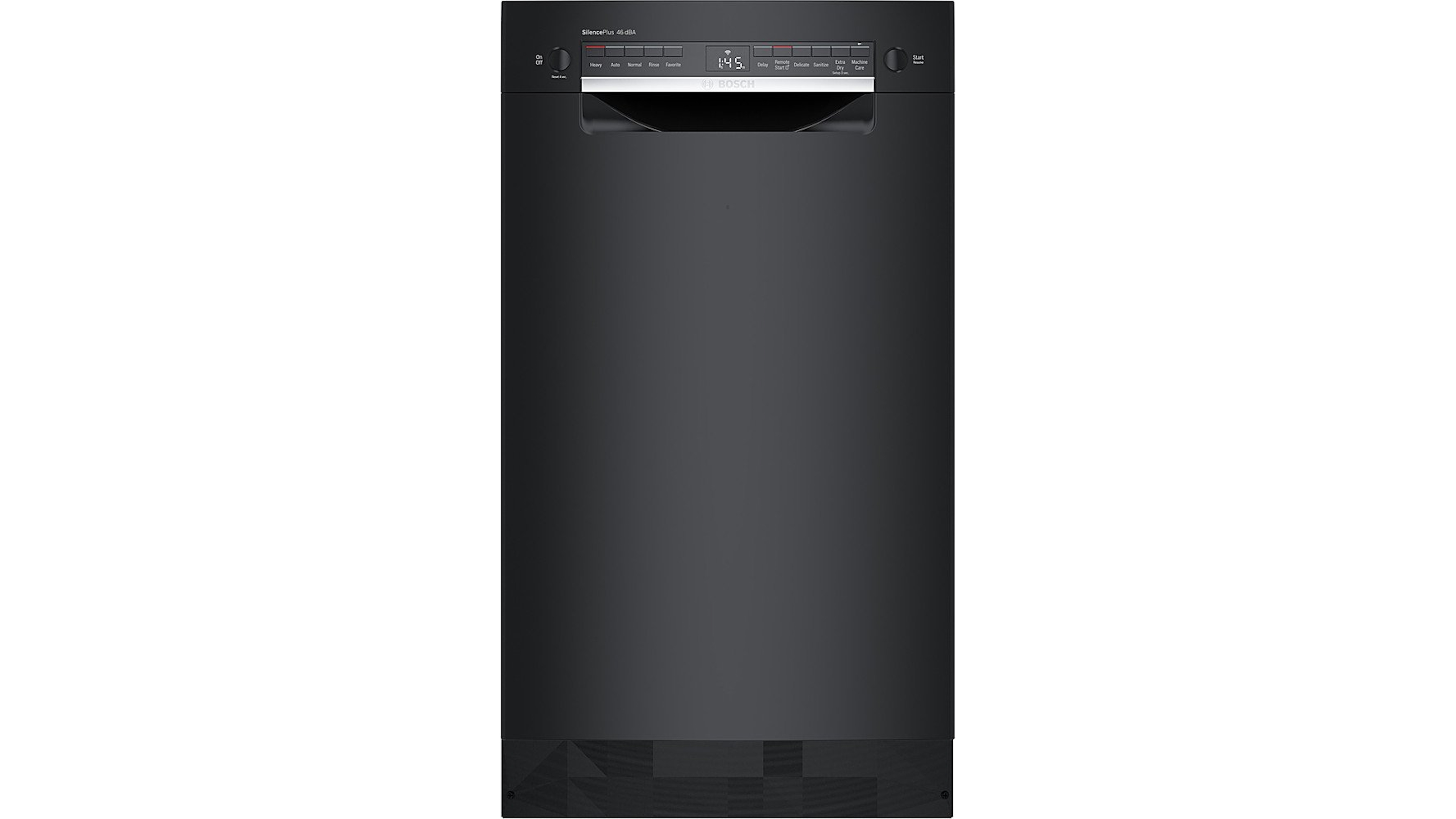
The Bosch 300 Series 18" Front Control Smart Dishwasher is praised for its easy installation process, user-friendly control panel, and exceptional cleaning and drying performance. With a compact design ideal for small kitchens, it offers hassle-free maintenance and a durable stainless steel interior, making it a top choice for many users.
Installation: Installing the Bosch 300 Series 18" Front Control Smart Dishwasher is pretty straightforward. In addition to fitting seamlessly into existing cabinetry, the dishwasher's compact size makes it ideal for small kitchens or tight spaces. The clear instructions and included installation kit made it an easy setup process.
Control Panel and Usability: The control panel and usability of the Bosch 300 Series dishwasher are frequently praised for their straightforward and user-friendly design. The front control panel is easy to access and intuitive, making it easy to select wash cycles and settings. The LED display lets you know how long the cycle is and what's left. With a third rack, users get more space and flexibility to load utensils and smaller items and quiet operation, making it perfect for open living spaces.
Cleaning Performance: Most users praise the Bosch 300 Series dishwasher for its spotless and gleaming dishes. It has many wash cycles, so you can clean everything from light loads to heavily soiled stuff. Users love the PrecisionWash system, which targets and eliminates stubborn food residues. Despite the compact design, users find the dishwasher handles full loads well.
Drying Performance: Users express satisfaction with the drying performance of the Bosch 300 Series dishwasher. Condensation drying is energy-efficient while effectively drying dishes, including plastics and glassware. While the drying performance is good, some items with deep concavities might retain moisture. The dishwasher leaves most items dry and ready to use, so you don't have to dry them manually.
Cleaning and Maintenance: Cleaning and maintaining the Bosch 300 Series dishwasher is generally hassle-free. The stainless steel interior makes it durable and resistant to stains, odors, and buildup. Clean the removable filter, keeping the appliance running smoothly and lasting longer. It's recommended that the spray arms and filter be checked regularly to keep them working. Because of the dishwasher's design, it's easy to clean, making it a low-maintenance and user-friendly appliance.
The quietest dishwasher
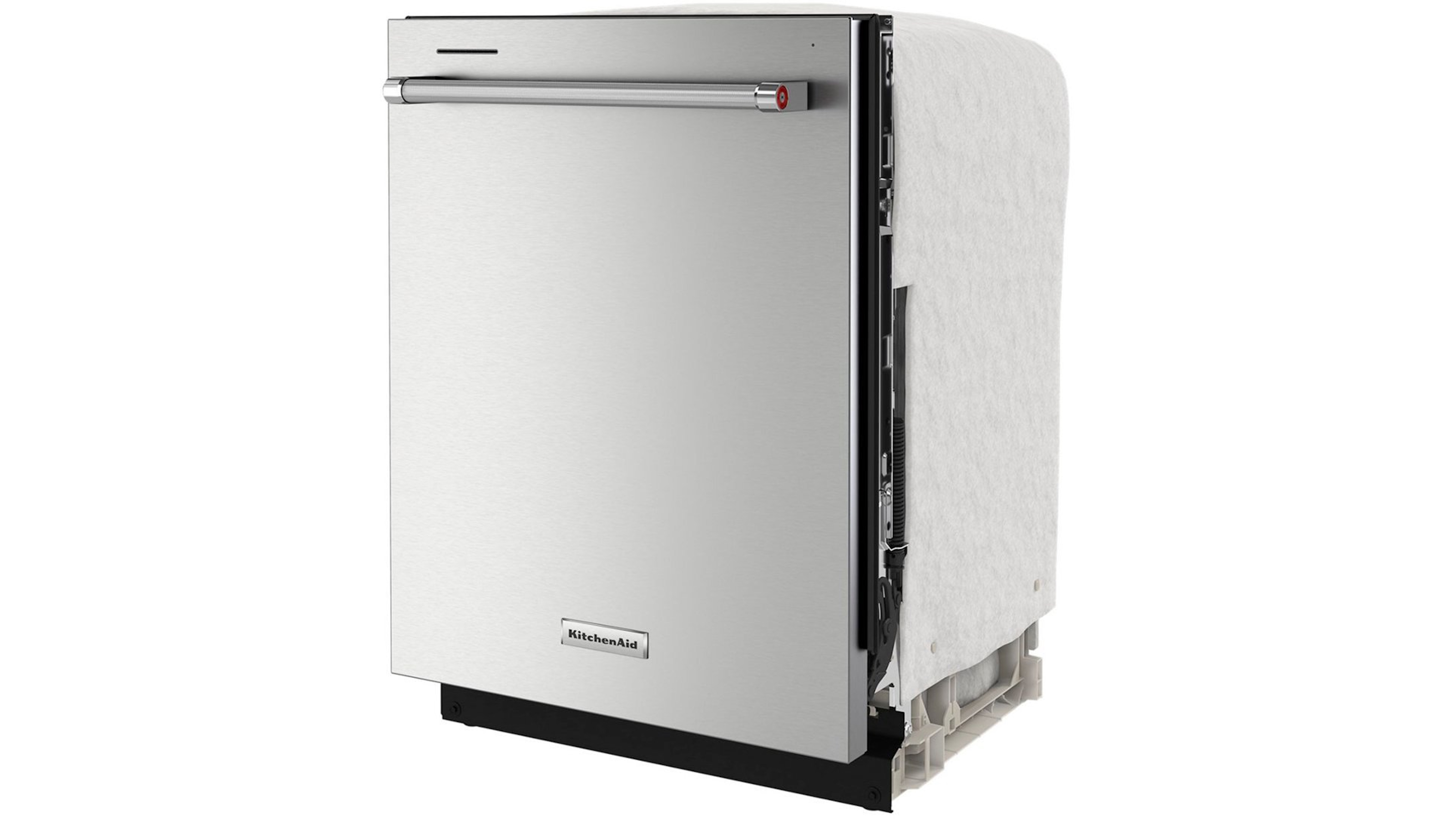
The KitchenAid 24" Top Control Built-In Dishwasher is praised for its easy installation, sleek design, and PrintShield finish. Its user-friendly control panel and low noise level make it convenient for open-concept spaces. Users love its effective cleaning performance, powerful wash system, and thorough drying capability, while its stainless steel tub and removable filter simplify maintenance.
Installation: The KitchenAid 24" Top Control Built-In Dishwasher is generally easy to install, with many users praising the clear instructions and included hardware that simplifies the process. The dishwasher fits seamlessly into standard cabinetry, making for a hassle-free setup. Its sleek design and PrintShield finish make it look great.
Control Panel and Usability: KitchenAid dishwashers are often praised for their control panel and usability. It has a clean, modern look and is easy to navigate, so you can select wash cycles and settings quickly and easily. The 39 dBA noise rating makes it perfect for open-concept living spaces. There's also a third rack for utensils and smaller things, so you can load it more easily.
Cleaning Performance: Users love the cleaning performance of the KitchenAid dishwasher, with many praising how effective the ProWash cycle is, which adjusts settings for optimal cleaning results with the powerful wash system and multiple cycle options. Food residues are thoroughly removed with the stainless steel tub and well-designed spray arms.
Drying Performance: Many users like how well the KitchenAid dishwasher dries. The advanced drying system dries dishes, including plastics, with very little moisture left behind. The dishwasher leaves most items dry and ready to use, but some items with deep concavities may retain moisture.
Cleaning and Maintenance: Users like the stainless steel tub because it is durable and resistant to stains and odors, making it easy to keep clean. The removable filter makes it easy to clean and maintain. Regular maintenance, like checking the filter and spray arms, is good to keep it running, and its PrintShield finish resists fingerprints and smudges, making exterior cleaning a breeze.
The best dishwasher with hard food disposer
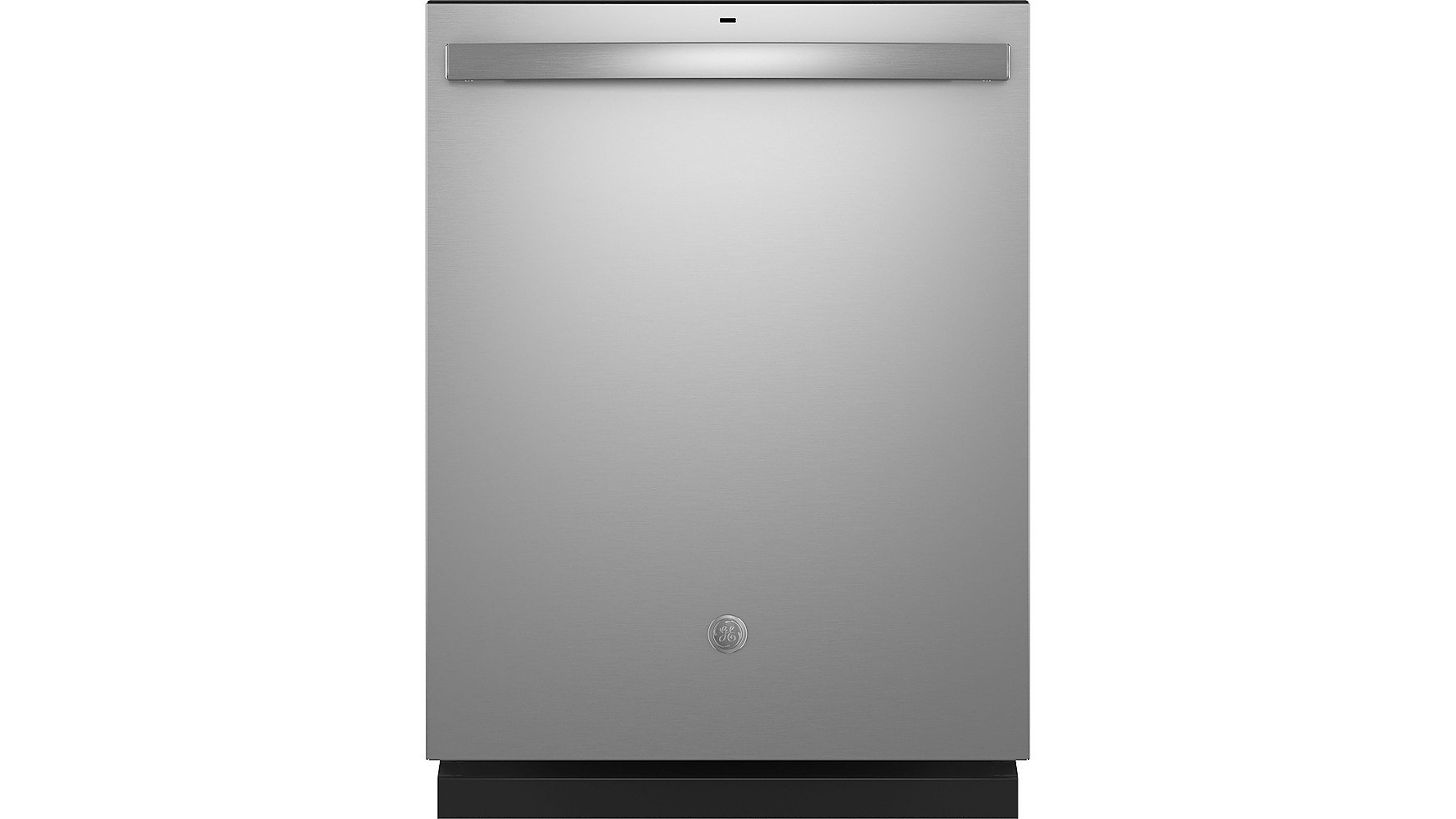
The GE 24" Top Control Built-In Dishwasher is praised for its easy installation, intuitive controls, and excellent cleaning performance. Users appreciate the powerful spray arms and effective sanitizing cycle. While the drying performance is generally good, some users report occasional dampness. The dishwasher's plastic tub and removable filter make cleaning and maintenance easy.
Installation: GE's 24" Top Control Built-In Dishwasher is easy to install, with clear instructions provided. It fits in most kitchens, so it's an excellent choice. Some users recommend getting a professional to install the unit to ensure all connections are secure, especially if they don't know how to set up appliances.
Control Panel and Usability: Users like the top-mounted controls, which are easy to access and let you pick a cycle quickly. LED indicators give you a clear picture of how the wash is going. Many users say the controls are intuitive, making operating easy, even if you're new to dishwashers.
Cleaning Performance: The GE dishwasher cleans well, and users keep saying it's great at handling all kinds of dishes and soils. The sanitizing cycle is especially appreciated since it makes dishes even cleaner. Many reviews highlight the powerful spray arms that reach all areas, resulting in thorough cleaning. Even heavily soiled pots and pans are cleaned.
Drying Performance: The GE dishwasher's drying performance is generally well-regarded by users. Many people love that the dishes come out dry and ready to use with little moisture left behind. Users say plastic items are usually dry after the drying cycle. Some users complain about dampness occasionally on certain items, particularly those with deeper contours.
Cleaning and Maintenance: Users find the GE dishwasher quite manageable. The plastic tub is known for its durability and resistance to odors and stains, so keeping it clean is easy. The removable filter is also easy to clean, keeping it in good condition. Self-cleaning is a big plus for many users.
The best portable dishwasher
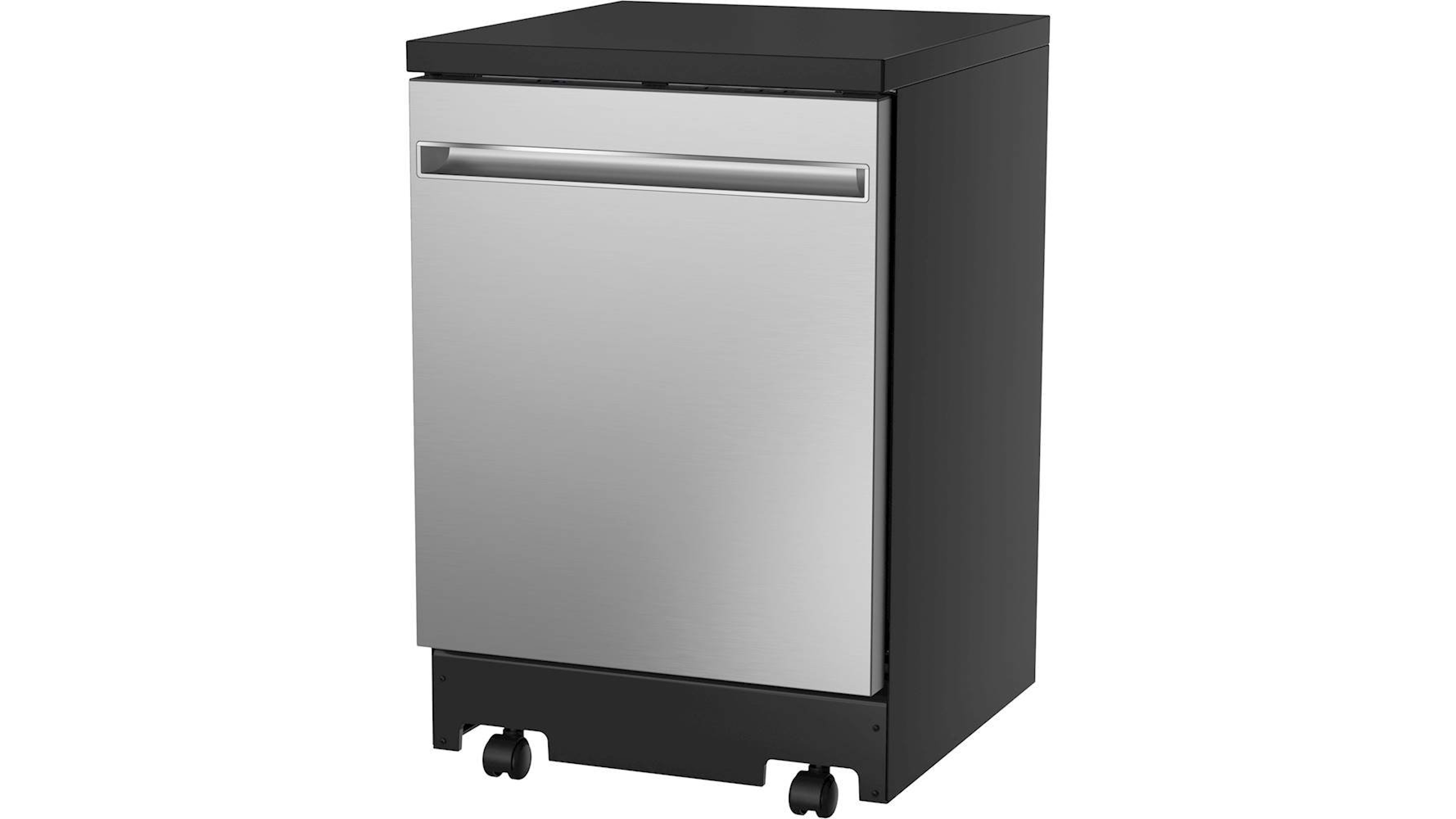
The GE 24" Portable Dishwasher is praised for its easy installation, intuitive control panel, and impressive cleaning and drying performance. Users appreciate its portable design, straightforward maintenance, and durable stainless steel interior. It's a reliable and user-friendly option for those seeking a convenient dishwashing solution.
Installation: Most users find the GE 24" Portable Dishwasher easy to install. Its portable design makes it easy to move and connect to kitchen faucets. The instructions are clear, so anyone with basic DIY skills can get it up and running.
Control Panel and Usability: The GE portable dishwasher's control panel is easy to use and intuitive. With straightforward dial and button controls, it's easy to select wash cycles. LED indicators let you know exactly what's happening in the cycle.
Cleaning Performance: Users consistently praise the cleaning performance of the GE portable dishwasher, saying it tackles a wide range of dish types and soil levels. Despite heavy use, most dishes come out clean and residue-free. Users find that everyday dishes and stubborn, baked-on grime are handled well with powerful spray arms.
Drying Performance: The GE portable dishwasher's drying performance is generally viewed positively. Users appreciate that most dishes come out dry, with no moisture left behind. Several glass and metal materials will dry well under the dishwasher's drying cycle. Some say plastic items may retain a little moisture, so they must be towel-dried.
Cleaning and Maintenance: The GE portable dishwasher's stainless steel interior is durable and resistant to stains, making it easy to clean. Users love the removable filter, which makes cleaning easy. Routine maintenance is easy, requiring minimal effort to keep your dishwasher going.
The best dual-drawer dishwasher
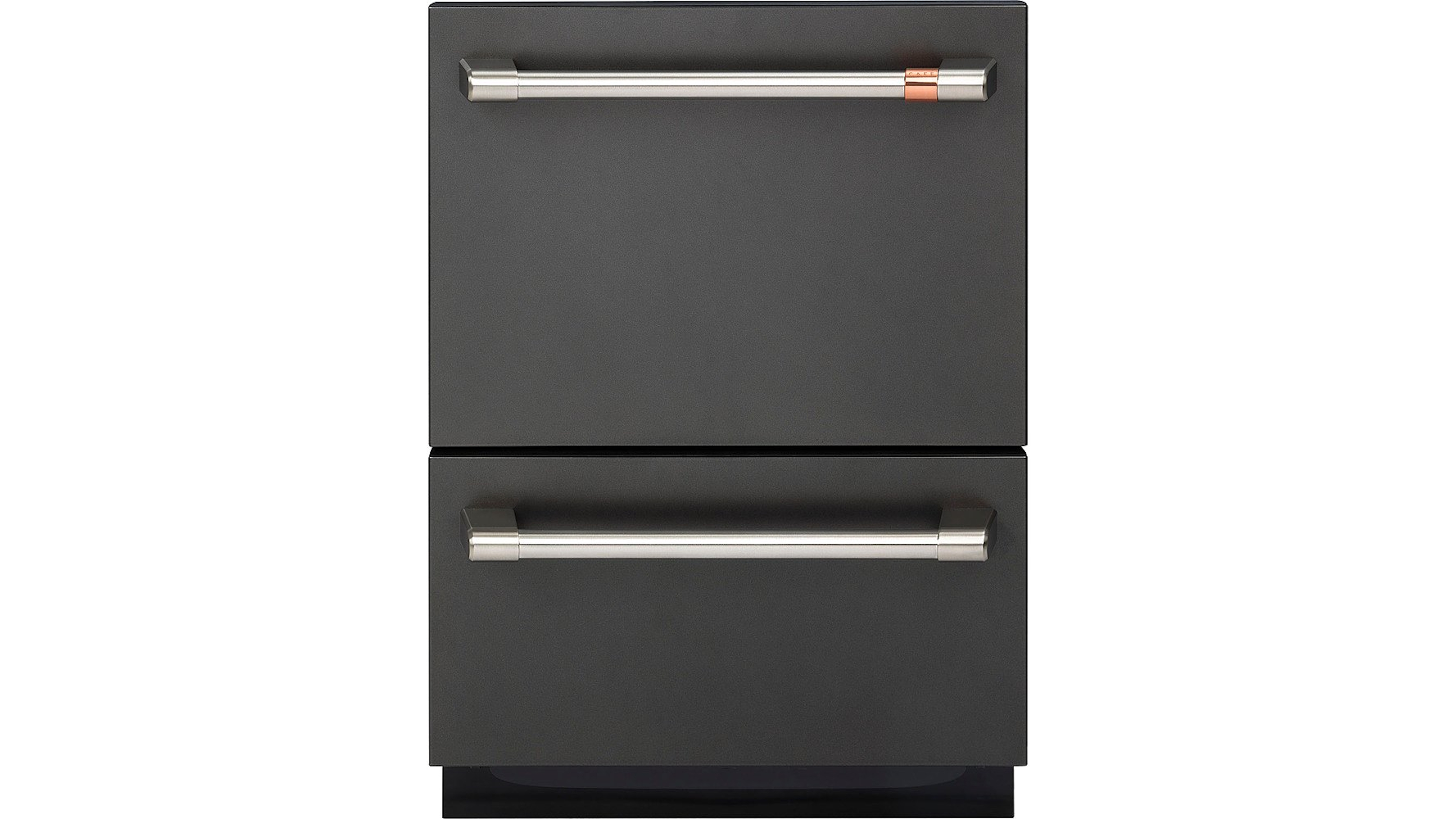
The Café 24" Top Control Built-In Double Drawer Dishwasher has garnered praise for its easy installation, intuitive control panel, excellent cleaning and drying performance, and simple maintenance. Its unique dual-drawer design offers flexibility for different kitchen layouts, making it a versatile choice for any home.
Installation: Café 24" Top Control Built-In Double Drawer Dishwasher users say it's pretty easy to install. Many people like the clear instructions they get, which makes it easy. Dual drawers allow flexible placement in different kitchen layouts, so you can use it for standard and unique spaces.
Control Panel and Usability: The Cafe dishwasher's control panel gets high marks for its modern design and intuitive usability. The customizable settings allow different cleaning needs to be met. Users appreciate the top-mounted controls, which are easy to access and operate. Most users like the interface's clear displays that show cycle progress and remaining time.
Cleaning Performance: Café's double-drawer dishwasher consistently gets great reviews. The unique design makes cleaning small and large loads easy, with a powerful spray action that reaches all areas. Dishes come out sparkling clean, removing tough stains and food residues. The ability to run separate loads in each drawer is convenient, accommodating a wide range of dish types and soil levels.
Drying Performance: Users generally like how well the Café dishwasher dries dishes. They say they come out mostly dry with minimal moisture left behind. The advanced drying technology ensures good results, even with plastic items. Some users note that deeper bowls or cups may retain some moisture, requiring quick towel drying.
Cleaning and Maintenance: Users say the Café dishwasher is easy to clean and maintain. Its stainless steel interior resists stains and odors, so upkeep is simple. Users love the accessible filter, which simplifies regular cleaning and helps maintain optimal performance. Routine maintenance is easy, requiring little effort, and the durable design ensures long-term reliability.
The best countertop dishwasher
Our reviewer, Yasmin Rufo, found installing the HAVA Countertop Dishwasher straightforward, though drilling a hole for the water supply was a hassle. She appreciates the easy-to-use control panel and the dishwasher's cleaning performance. However, she has mixed feelings about its drying performance but finds the maintenance hassle-free.
Installation: Installing the HAVA Countertop Dishwasher was surprisingly straightforward for Yasmin. It arrived well-packaged, and she appreciated the clear instructions included. Despite the recommendation to have two people lift it out of the box, she managed to get it out with some careful maneuvering. It took only a few minutes to set it up; she plugged it in and connected it to her faucet without a problem. Drilling a hole in her countertop for water supply was a bit of a hassle. The dishwasher fits best on counters without overhead cabinets because of its height.
Control Panel and Usability: Yasmin's favorite thing about the HAVA Countertop Dishwasher is the control panel. It's easy to select from the five wash cycles on the touch-screen. A transparent front panel lets her see the washing process, which she likes. She loves the speed mode, which cleans her dishes in 29 minutes! She likes the LED lights too! When she opens the door, they light up. It's tall, so getting to the back water tank can be tricky.
Cleaning Performance: Yasmin tested the HAVA Countertop Dishwasher with a bunch of things, like plates, glasses, and pans, and it's always done a great job. The normal wash setting takes just over an hour and is spotless. Rinsing off solid food beforehand yields the best results since some residue will remain otherwise. Speed mode makes it easy to clean, so she uses it constantly. Loading too many things close together can make cleaning hard, so she's learned to space them out.
Drying Performance: Yasmin has mixed feelings about the drying performance of the HAVA dishwasher. Some dishes come out pretty dry, but some, especially deeper bowls, stay moist. The dry mode takes over an hour, which isn't ideal when she's on the go. Sometimes, the dry mode starts automatically at the end of the cycle, which is frustrating because she has to wait for it to finish before she can open the door. Some items need a quick towel dry, but overall, it's decent, just not perfect.
Cleaning and Maintenance: Yasmin likes how easy cleaning the HAVA Countertop Dishwasher is. She cleans it under warm running water every week. It's easy to clean the coarse and fine filters with a wire brush, and she feels good knowing she's doing her part to maintain it. She's had no problems with odors or stains with the interior design, and it's easy to wipe down. It also comes with a 12-month warranty, though it's a shame it doesn't cover general wear and tear.
Read more: HAVA Countertop Dishwasher review

"The HAVA Countertop Dishwasher is impressively compact and easy to use, but its limited capacity and high price tag might not suit everyone’s needs."
The best panel-ready dishwasher

The Frigidaire 24" Top Control Built-In Panel Ready Dishwasher is praised for its easy installation process and intuitive control panel. Users appreciate its effective cleaning and drying performance, with minimal maintenance required due to its durable stainless steel interior and removable filter.
Installation: The Frigidaire 24" Top Control Built-In Panel Ready Dishwasher is easy to install. Many users love the clear instructions, which simplify the setup process. Most users report that the dishwasher fits into standard cabinetry and can be installed with basic tools. Some people recommend having a second person help lift and position the unit, but overall, the installation experience is positive. Connecting the water supply and drain hose was easy, so users could immediately start washing dishes.
Control Panel and Usability: Many people like Frigidaire's control panel because it is easy to use and intuitive. Top-mounted controls are easy to access and operate. They're clearly labeled, and LEDs give you a lot of feedback. The layout is easy to use, so you can easily pick wash cycles and options.
Cleaning Performance: The Frigidaire dishwasher cleans well, even after heavy use. Many people say it gets rid of tough stains and food residues. The powerful spray arms ensure thorough coverage, covering all corners of the dishwasher. There are also several wash cycles, so you can tailor your cleaning to your dishes.
Drying Performance: The Frigidaire dishwasher's drying performance is generally well-received by users. The dishwasher's drying cycle handles various materials well, including glass and metal, with minimal moisture left behind. Many users report that their dishes come out dry. However, some users say some plastic items retain moisture.
Cleaning and Maintenance: The Frigidaire dishwasher's stainless steel interior is durable and resistant to stains, so cleaning and maintenance are easy. The removable filter makes it easy to clean and keeps it performing at its best. Routine maintenance tasks are easy, requiring minimal effort to ensure longevity.

How to choose the best dishwasher for you
When deciding how to choose a dishwasher for your home, there are several key elements to consider.
Dimensions and capacity: Measure the width, depth, and height of the area where you want to install the dishwasher before you look for it. Standard under-counter dishwashers are typically 24 inches wide, 24 inches deep, and 36 inches tall. You can find compact dishwashers or custom models if you need them. Standard dishwashers can fit up to 14 place settings, which is good for three people, while compact models fit six to eight.
Energy usage: Look for an EnergyGuide label on the best dishwasher. Modern dishwashers are much more water—and energy-efficient than their predecessors. You can compare the dishwasher with similar models by looking at this label. Running an Energy Star dishwasher costs around $35, saving around 2870 gallons of water annually. Investing in a more efficient dishwasher may cost more, but it's worth it.
Sound level: Dishwashers can make noise while they're running. The average noise level of a dishwasher's cycle can be measured in decibels (dB). You might want to look for a quieter model in a small house with thin walls. Dishwashers typically run 45-59 decibels, with very quiet ones going 39-45 decibels. Ensure your dishwasher has a maximum sound level of 50 dB or less to avoid disturbing your family.
Rack number and design: A dishwasher's size determines its number of racks. Smaller ones may only have one rack, but most have two or three. There's usually a cutlery drawer and wine glass supports; some have removable racks.
Your dishwasher's racks and placement affect what can fit in it. If you cook in large pans or pots, ensure they fit and check how much effort it takes to fit them. The point of a dishwasher is to minimize or eliminate doing the dishes, so make sure everything fits.
Dishwashers come in different sizes, shapes, designs, colors, and finishes. You can get a matching false cabinet door if you'd like to integrate your dishwasher into your cabinets. When looking for the right dishwasher, consider your vision for its placement and design preferences.
Cycles: Dishwashers offer a variety of cycles, including gentle, intense drying, draining, and rinsing. Some models have unique cycles, like Eco or auto sensors that adjust according to the dirty dishes. When choosing a dishwasher, consider the number of cycles, the duration of each cycle, and the delay function. Pick a dishwasher for your home based on your specific needs.
Additional features: Various unique features can be found in modern dishwashers. The specific features depend on the brand and model, but here are some examples:
- Anti-fingerprint coating on the outside
- Delay start cycle
- Internal dirtiness sensors
- Leak detection system
- Filtration system
- RinseAid function
- WiFi connection or app
- Gentle close door
- Multi-level wash system
- Multiple dry cycle options
Consider carefully what you need from a dishwasher and see if the model you prefer has any useful features that could help.
Price: The average dishwasher costs about $500, with many people choosing models between $300 and $500. Under-counter dishwashers can go for $200 to $2000. If you find one you like that's priced higher, wait for a sale or use a coupon to get a better deal. We recommend deciding on your budget beforehand and looking for a dishwasher within your price range.
Generally, dishwashers give you what you pay for, but do your research to ensure they're as good as the brand claims. Since a dishwasher's main function is cleaning, its performance should be the top priority.

Lucy Baxter is the Bosch Group Marketing Manager at BSH Home Appliances. The Bosch Group is a leading global supplier of technology and services, and its operations are divided into four business sectors: Mobility, Industrial Technology, Consumer Goods, and Energy and Building Technology.
"A place setting includes all the utensils needed for one person in a typical three-course meal: one dinner plate, one dessert plate, one soup bowl, one glass, one teacup, and saucer, and cutlery," Lucy Baxter, Bosch Group Marketing Manager, told us.
"For families and those who frequently entertain, a full-sized 60cm model is ideal. On the other hand, smaller households or those with compact kitchens will find the slimmer 45cm width more suitable," she advised, highlighting the benefits of different sizes for specific user groups.
"Freestanding dishwashers are easier to remove for repairs and can be taken with you if you move," Baxter continued. "On the other hand, integrated options are concealed behind a door panel to match the kitchen cabinetry, creating a sleek and streamlined look perfect for contemporary and modern kitchens."
"Dishwashers with brushless motors are a boon for those who value a peaceful home, as they are generally quieter than those with other motors," she said.

Gino Grossi is the Head of Brand and Category Marketing at Samsung Electronics. Samsung Electronics strives to deliver innovative products and experiences that maximize user convenience and improve consumer lives.
Gino Grossi, Head of Brand and Category Marketing at Samsung, explained the distinction between freestanding and built-in dishwashers to Top Ten Reviews.
He said, "Freestanding models are straightforward to install, requiring only a water inlet, waste, and electricity to be connected. On the other hand, Built-in models are a bit more complex, as they necessitate a door to be attached to the front of the dishwasher, and there are two different hinge types, fixed or sliding."
"The energy labels also provide information on the energy consumption of the eco-program per 100 cycles in kilowatt hours (kWh), water consumption per cycle on the eco-program in liters, and the duration of the eco cycle in hours and minutes.
"Higher-end dishwashers can use as little as eight liters in comparison to lower-end models and even hand-washing that use significantly more," added Grossi, highlighting the environmental benefits of investing in a quality dishwasher.
"WiFi can also help look after your dishwasher and appliances through remote engineer assistance and prolong the life of your appliance with notifications and over-the-air updates," Grossi continued. "This ensures you're optimizing its performance and keeping it up to date."
"There are many options available for dishwashers on the market, and depending on your needs, narrowing down your options could prove challenging. In general, some key features in a high-quality dishwasher are energy efficiency, noise level, the number of programs, WiFi connectivity, and water usage."
Mistakes to avoid when buying a dishwasher
From correctly measuring your space to ignoring inflated dishwasher "deals" that seem too good to be true, these tips will help you see past the sales hype and find the best dishwasher to suit your household needs and budget.
Ignoring energy and water efficiency
According to Consumer Reports, today’s dishwashers use around half the energy and water they did two decades ago. Most use between 4 and 6 gallons of water during each load. But that doesn’t mean all dishwashers offer the same energy and water efficiency.
"Choosing a cheaper dishwasher model without considering energy efficiency is a big mistake," says Brian Johnson, appliance expert at MyJobQuote.co.uk. "You may save on the purchase price, but that’s no good if it costs more to run. And if you’re using the dishwasher once or twice a day, those extra costs will stack up."
Looking for a dishwasher with the Energy Star symbol will save you money on utility bills. It uses around 12% less energy and up to 30% less water than one without the emblem. The Department of Energy estimates this can save up to 3,870 gallons of water over the average lifetime of a dishwasher.
Using environmentally and energy-friendly settings on your dishwasher, such as Eco mode, light load, or air dry settings, can save you even more.

Brian Johnson has worked as an appliance expert for MyJobQuote for four years and has worked in the industry for over 25 years. Brian continues to work for clients, providing appliance diagnostics and repairs while also providing expert advice to industry professionals and homeowners. His expert tips have been featured in a range of reputable publications over the years.
Not considering capacity and usage
Buying the largest and fanciest dishwasher may be tempting, especially if you find a great deal, but do you need enough capacity for 16-place settings? If you run halfloads, you risk wasting energy and water. Similarly, a slimline dishwasher may seem like a great idea if you have a small household or a tiny kitchen, but you could run multiple loads daily.
Think about your household habits and needs. A standard-sized dishwasher can generally hold around 12 place settings, which is about right for the average household.
Not measuring up before you buy
"One of the biggest dishwasher mistakes comes from measuring up incorrectly," says Johnson. "People often forget to factor in space for the pipework when they choose a dishwasher, leaving the appliance jutting out from underneath the worktop. So, when measuring the available depth under the counter, take 2 to 3 inches off your total to allow for pipework at the back."
Measure the height, width, and depth of the space available for your new dishwasher, and consider any countertops or cabinets that may impact the measurements. Standard dishwashers need at least 32 inches of clearance, while larger models may need around 34-36 inches. Check where the water and electrical connections are located, and make sure your new appliance can connect to the water line and power source.
One final check is measuring how far you can open the dishwasher door to fill and empty it properly and ensure nothing can impede its opening. Remember to measure twice, or even three times, to ensure you’re selecting the right size and model of dishwasher for your space.
Thinking you have to go for a lower decibel rating
This may seem like counterintuitive advice, but most modern dishwashers are super quiet during operation. The average dishwasher noise output ranges from around 45 to 50 decibels (dB), which is no louder than your refrigerator or the sound of rainfall. So, do you need to fork out hundreds of dollars more for that ultra-quiet appliance? Maybe not.
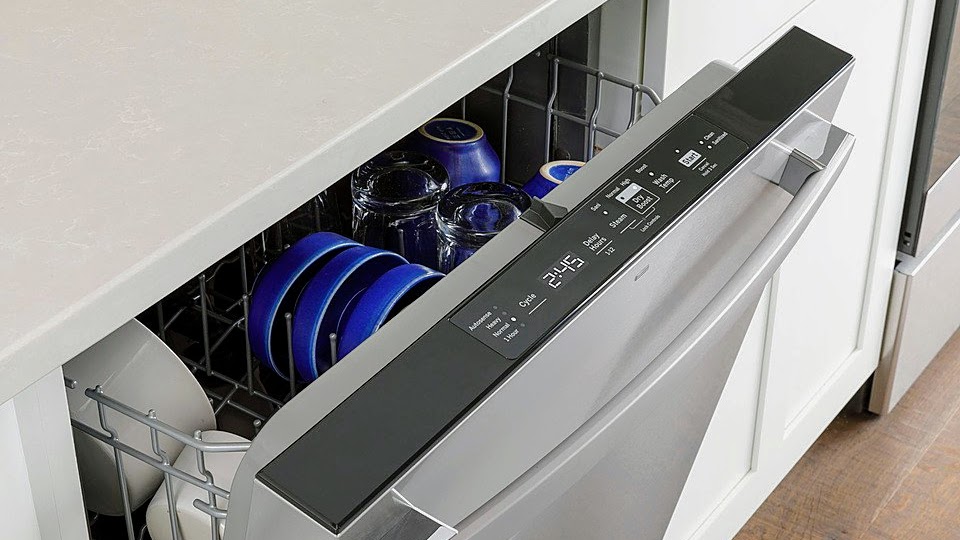
Overlooking the warranty
A solid warranty gives you peace of mind that the manufacturer will stand behind the product if anything goes wrong. On rare occasions, dishwashers fail earlier than expected due to mechanical or electrical issues, or poor workmanship or faulty components can cause problems. A good warranty should cover parts and labor for one to two years or longer, so look for a dishwasher that comes with this.
Not checking the interior
"Be sure the dishwasher you buy will work for you," says Johnson. "You don’t want to hand-wash tall glasses and large baking trays because they don’t fit in your dishwasher. Standard-sized models typically hold up to 50 items more than slimline dishwashers, but the adjustability of the racks can also affect how much you can fit in."
It’s always a good idea to check out your chosen dishwasher in person if you can. This will allow you to see if your cookware and dishes can be accommodated. If you’re a keen cook who likes to use multiple pans and trays, and you find none of them fit in your dishwasher - you’ll be sorely disappointed! Johnson adds, "Some racks move up and down and have foldable sections to help accommodate awkward items. So, look out for these handy features."
Ignoring customer reviews
Before purchasing any dishwasher, read as many user reviews as possible on multiple websites. This will give you a realistic idea of the dishwasher's performance, reliability, ease of use, efficiency, and any common issues that tend to crop up.
Reviews from actual users highlight potential shortcomings in certain dishwashers that manufacturers won't advertise, such as noise levels, insufficient spray coverage, ineffective cleaning, etc. You’ll also get a feel for the quality of customer support your chosen brand or retailer offers and learn which features are worth the extra cash or are unnecessary add-ons.
Opting for a model in a 'premium' color
You may be tempted by a gorgeous stainless steel dishwasher, but could you save hundreds of dollars by opting for the same model in white? You’d be surprised how much the cost increases once other colors and materials are used on a standard dishwasher.
It’s worth considering whether you need that glossy black premium model or whether a standard white fits just as well in your kitchen. It’s also a good idea to consider whether you’ll change your kitchen decor in the future, which could make your brightly colored dishwasher more of an eyesore than a talking point!
Falling for an inflated dishwasher deal
The most crucial part of getting a bargain is thoroughly researching before the event. Use a price-checking website to track the cost of your favorite dishwashers to see if that price is a great deal.
Many websites inflate the cost of appliances in the months before events like Black Friday to appear to offer significant savings, but consumers are becoming savvy. Be cautious of any deal that seems too good to be true because it probably is. Make sure you set a budget, do your research, and make an informed decision. Happy hunting!
Dishwasher FAQs
How do dishwashers work?
Dishwashers make cleaning dishes, pots, pans, and utensils easy. The process starts with loading dishes into the dishwasher's racks, usually arranged to maximize space and make water accessible. The dishwasher combines water, detergent, and mechanical action to achieve optimal cleanliness. When you close the door and select the cleaning cycle, the dishwasher fills up with water.
The fill valve lets water flow into the basin, and detergent from a compartment mixes. When the water is filled, the dishwasher's heating element warms it to the right temperature, usually between 130°F and 170°F, so the detergent works better. After activating the spray arms, hot, soapy water spreads across the dishes thanks to their multiple nozzles.
As the cycle continues, the dishwasher drains the soiled water through a filter, catching food particles and debris to prevent clogs. The spray arms rotate and spray water under pressure, covering all surfaces of the items inside. Rinse is next, so clean water sprays to remove any detergent and residue left.
The dishwasher repeats this process several times, depending on your chosen wash cycle. Finally, it drains the rinse water and starts drying. When the cycle is finished, the dishwasher signals that it's done, and users can safely unload their clean, sanitized dishes. This may involve a heated drying system or a fan circulating air to evaporate moisture.
How much does it cost to install a dishwasher?
The cost of installing a dishwasher depends on several factors, such as the type, the complexity of the installation, and where you live. Professional installation usually costs between $100 and $500, not including the dishwasher. If you're buying a standard built-in dishwasher, you'll spend between $150 and $300 on installation.
This price range usually covers labor costs for a licensed plumber or appliance technician who handles the plumbing, electrical, and drainage connections. However, if you need to modify your existing plumbing or electrical system to fit the new appliance, you'll have to pay more for advanced models, like portables or high-end dishwashers.
A portable dishwasher that connects to your kitchen faucet may be cheaper to install, often $100 to $200, but you'll need additional accessories like hoses or adapters. Also, homeowners might have to pay extra for upgrades or modifications if there's no proper plumbing or electrical connection at the installation site.
Disposal fees can also add to the cost, typically $25 to $50. You should also consider the cost of the dishwasher itself, which can range from around $300 for basic models to over $1,500 for premium models with advanced features. If you're budgeting for installation, you should include the appliance cost and the labor, which usually ranges between $400 and $2,000, depending on your options.
Get quotes from multiple professionals to ensure you get a fair price.
How much does it cost to run a dishwasher?
Depending on the model and local electricity rates, a dishwasher costs between $0.14 and $0.30 per cycle.
If you run it four to five times a week, you'll spend about $3 to $6 on electricity each month. Modern dishwashers consume 11 to 13 liters (about 3 to 3.5 gallons) of water per cycle, so you'll spend about $35 to $72. Hand washing can take up to 40 gallons for the same amount of dishes.
This significant difference saves water and reduces the energy required to heat that water, making dishwashers a more sustainable choice. The dishwasher usually consumes 1 to 2 kWh per cycle. For example, if your dishwasher uses 1.5 kWh and your electricity rate is $0.12 per kWh, running each cycle will cost about $0.18.
It's also important to consider other dishwasher costs, like detergent and maintenance. Additionally, a cycle can last 1 to 4 hours, with the heating element consuming the most power.
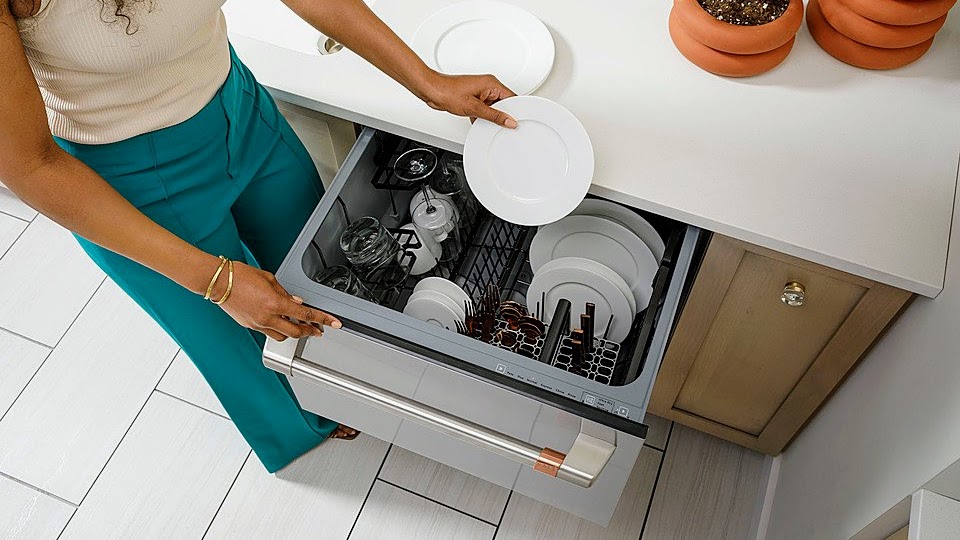
How long do dishwashers last?
Dishwashers last 7 to 12 years, with an average lifespan of about 9.5 years across different brands and models. A dishwasher's life depends on many things, including its brand, model, frequency, and maintenance.
Brand and Model: Many brands are known for their durability and reliability. High-end models often have better materials and advanced features that make them last longer. Brands like Bosch and Miele are often praised for their longevity.
Maintenance: A dishwasher's life depends on regular maintenance. Cleaning the filter, running a vinegar cleaning cycle, and ensuring the spray arms are debris-free are simple ways to improve performance and longevity. You don't want food particles and mineral deposits to build up over time, which can cause wear and tear.
Usage: A dishwasher's lifespan is also affected by how often it's used. If you use it every day, it might wear out faster than if you only use it once or twice a week. In addition, the way dishes are loaded, and the stuff you wash can affect how efficient and durable it is.
A dishwasher generally lasts about 10 years but can last even longer with proper care and maintenance. If you want this kitchen appliance to last, keep it clean and use it wisely.
When is the best time to buy a dishwasher?
The best time to get a dishwasher deal is during holiday sales, the end of the season, right after a new model comes out, or during off-peak shopping periods.
Black Friday, Cyber Monday, and Labor Day all offer great deals on appliances, including dishwashers. It's ideal to find a good deal because retailers tend to offer them during these high-traffic shopping periods.
The end of the year for appliance retailers is also a great time to buy a dishwasher, usually in the spring or summer. The retailer may need to clear out their inventory so new models can be sold, so existing stock is on sale. This period can yield substantial savings, especially on last year's models, which are still highly functional but may lack the latest features.
As manufacturers release their latest models, previous models go on sale. New models usually come out in the fall. If you shop right after new models are released, you can save a lot on older models that still work great.
Taking advantage of off-peak times, like early spring or winter, when fewer people buy large appliances, can also be a good idea. Retailers run promotions to encourage sales in these slower times so you can find a good deal.
